





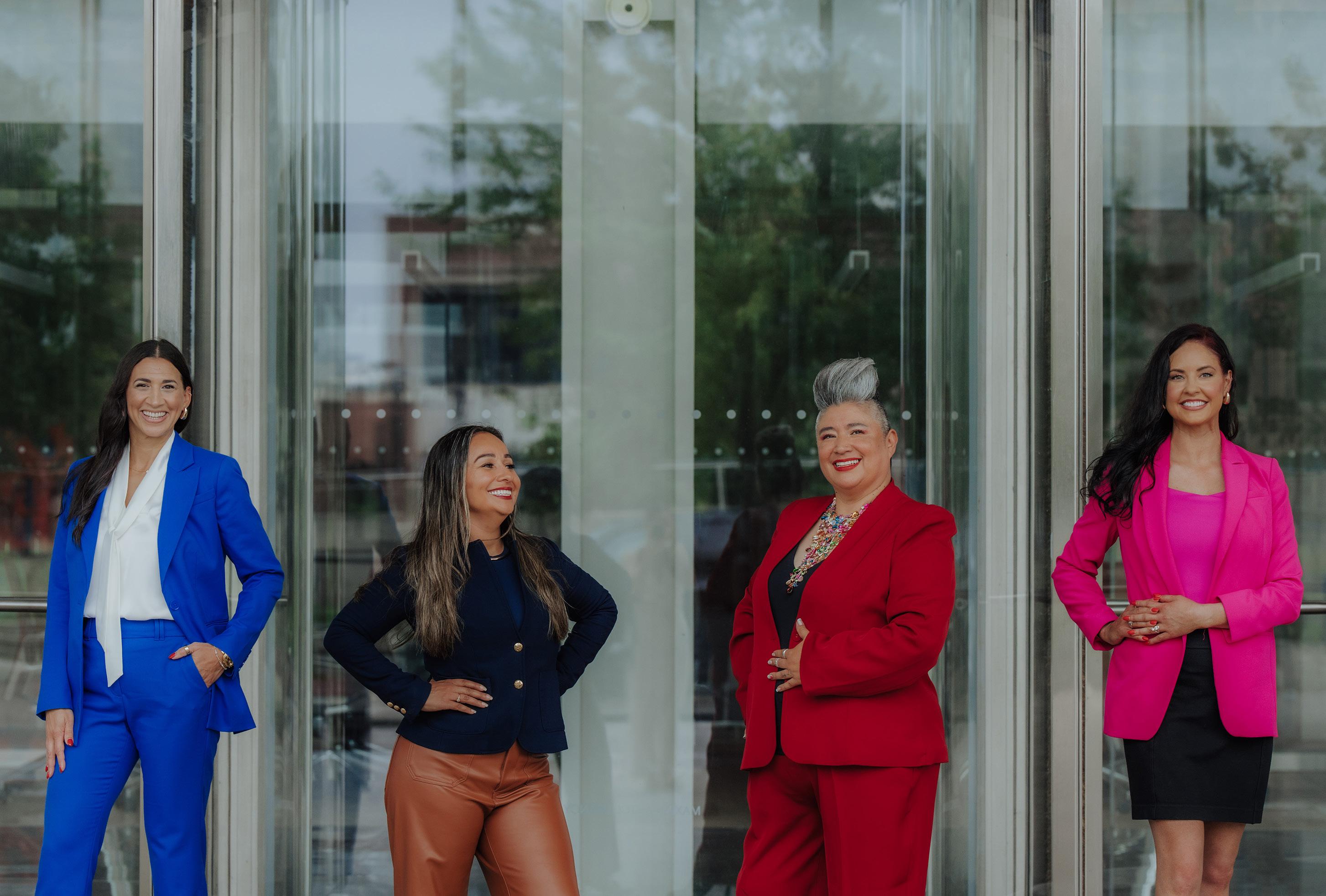
"When JEFAS lift each other up with heart, resilience, and purpose. We build a powerful community where every Latina and her dreams thrive."
-ERIKA MACIAS
Presidend
and Publisher
Hola America Media Group and JEFAS Latinas in Bussiness Magazine

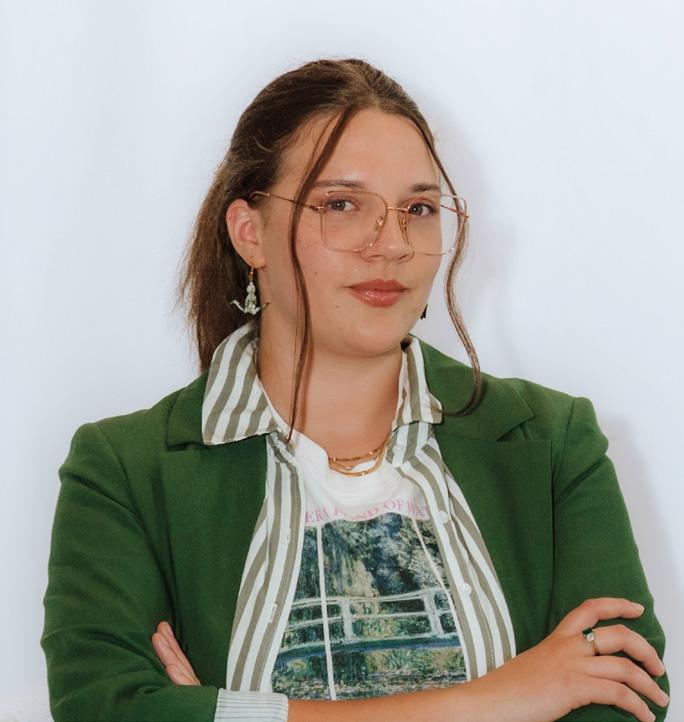
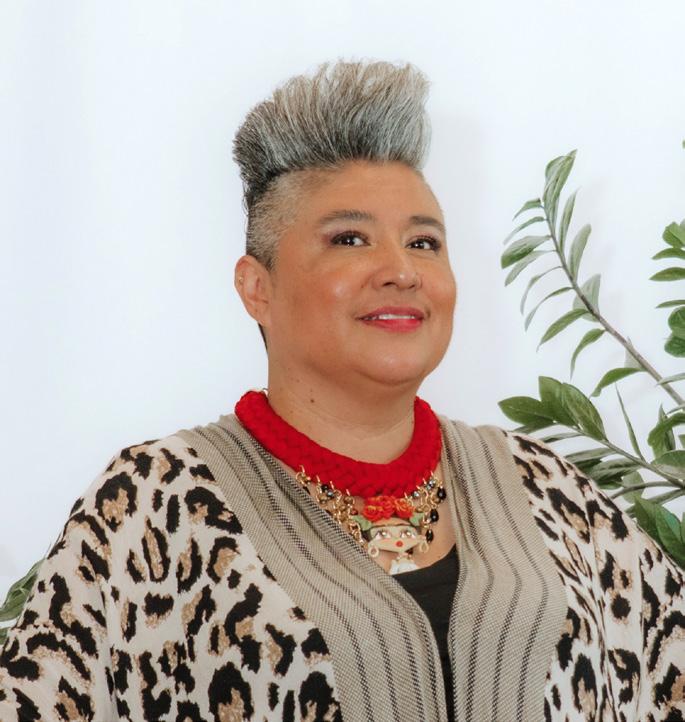
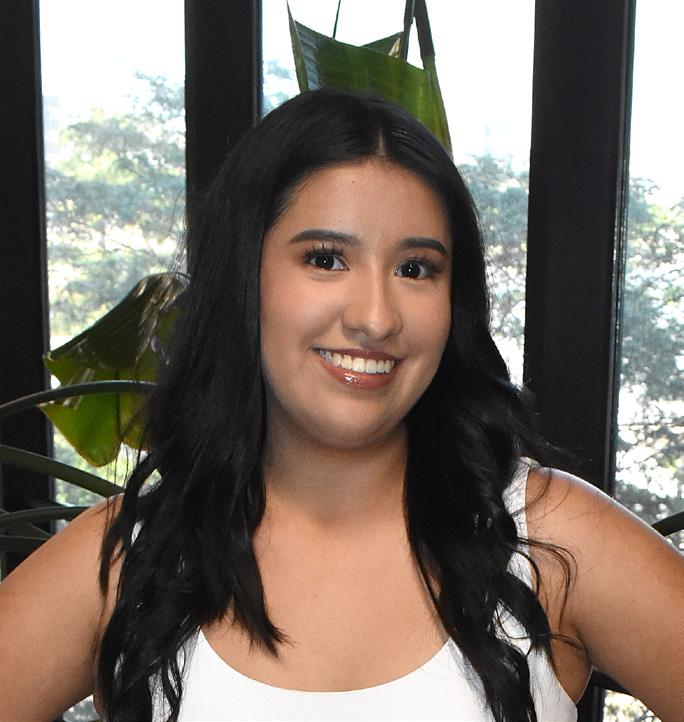

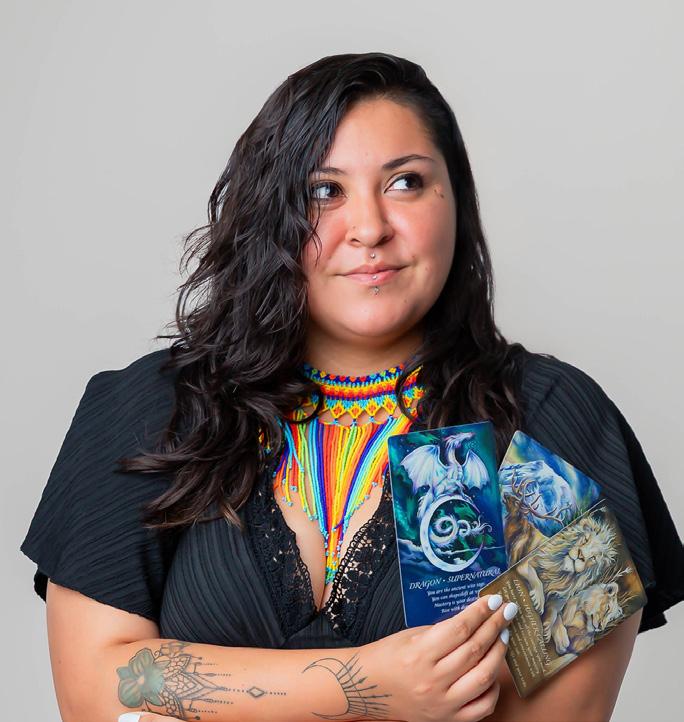
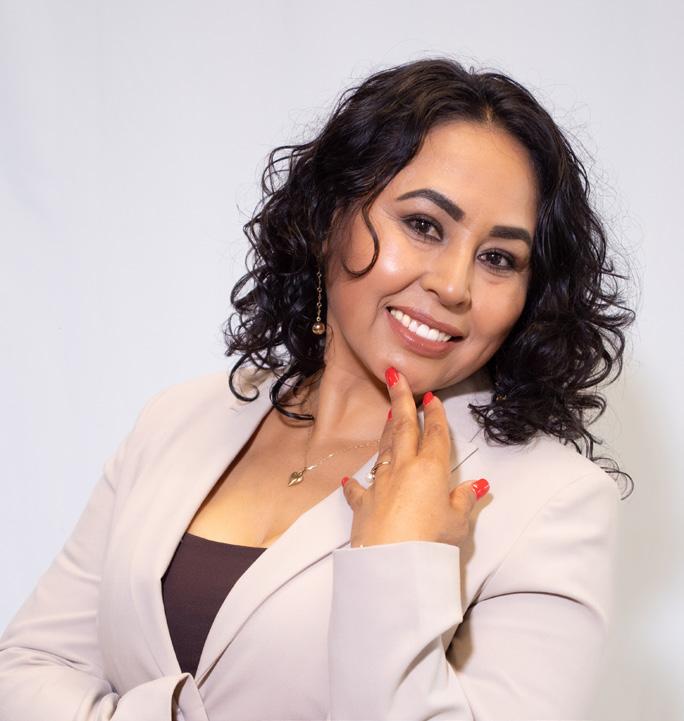








"When JEFAS lift each other up with heart, resilience, and purpose. We build a powerful community where every Latina and her dreams thrive."
-ERIKA MACIAS
Presidend
and Publisher
Hola America Media Group and JEFAS Latinas in Bussiness Magazine








Scan QR code to read more
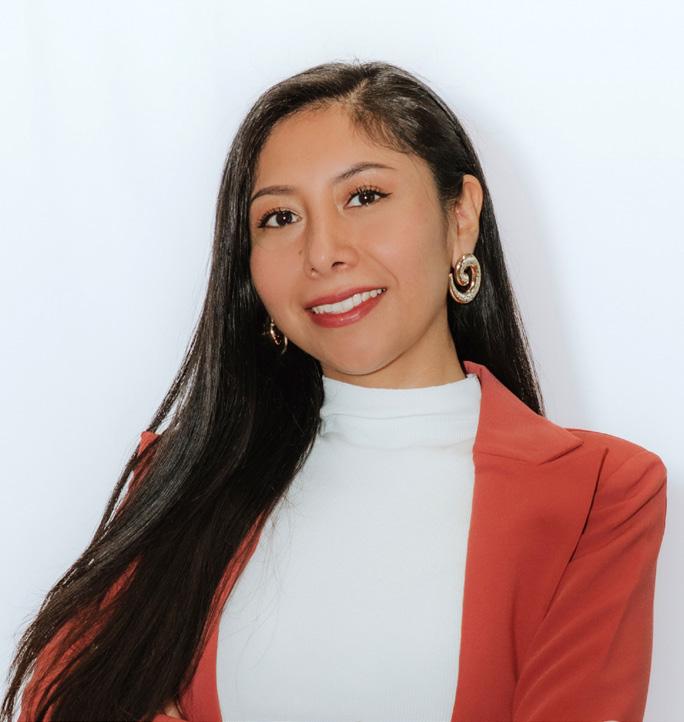






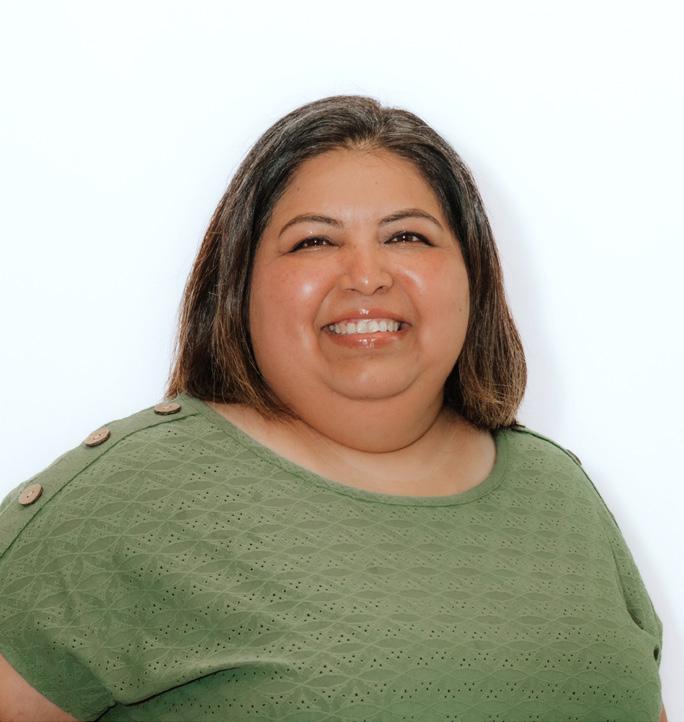




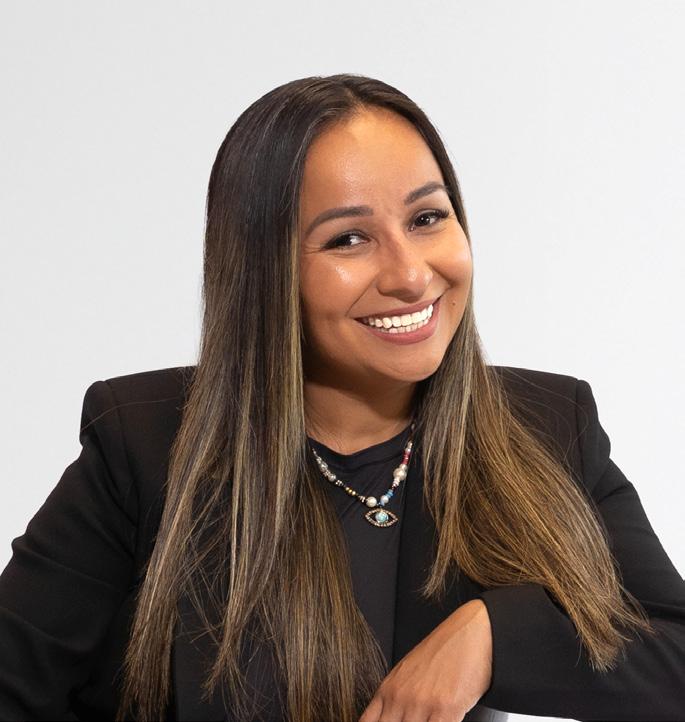

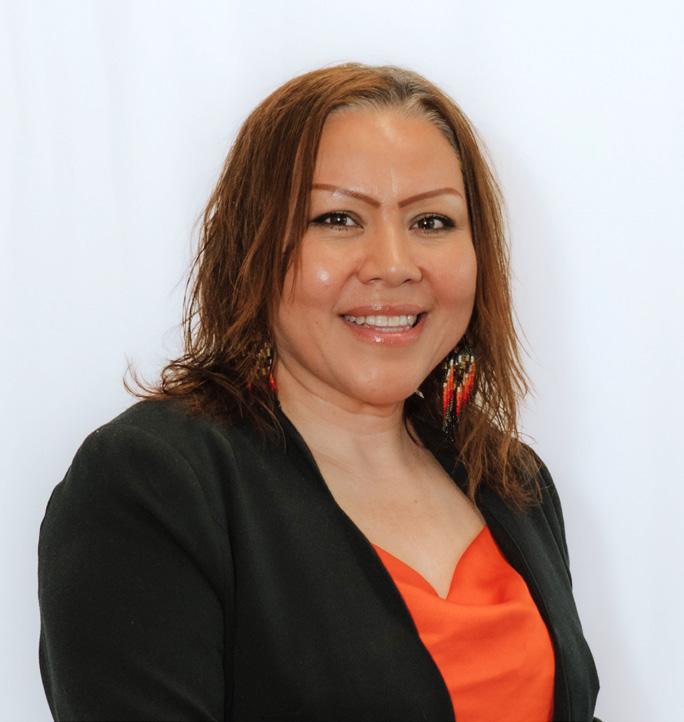



Hola America Media Group publishes JEFAS Latinas in Business
Hola America Media Group Staff
PRESIDENT AND PUBLISHER
Erika Macias
EDITOR-IN-CHIEF
Christina Fernández-Morrow
EXECUTIVE ASSISTANT AND DIGITAL MANAGER
Yariela Contreras
DIGITAL STORIES MANAGER
Carolina Martínez
TRANSLATOR
Andrés Ramírez
CEO & HEAD OF STRATEGIC PARTNERSHIPS
Tar Macias
Collaborators for the JEFAS SUMMER EDITION
DESIGNER
Andrea Viveros WRITERS
Samantha Mesa
Lily Allen Dueñas
Karlha Velásquez
Juan Fourneau
Antonia Rivera
PHOTOGRAPHERS
Jennifer Marquez
Tatiana Peña
Wezz De La Rosa
Tar Macias
Jasmin Adriana González
TO CONTACT US:

Jess Quinn, page
www.jessquinnart.com
Pamela Douglas, page 4 www.pamelasdouglas.com

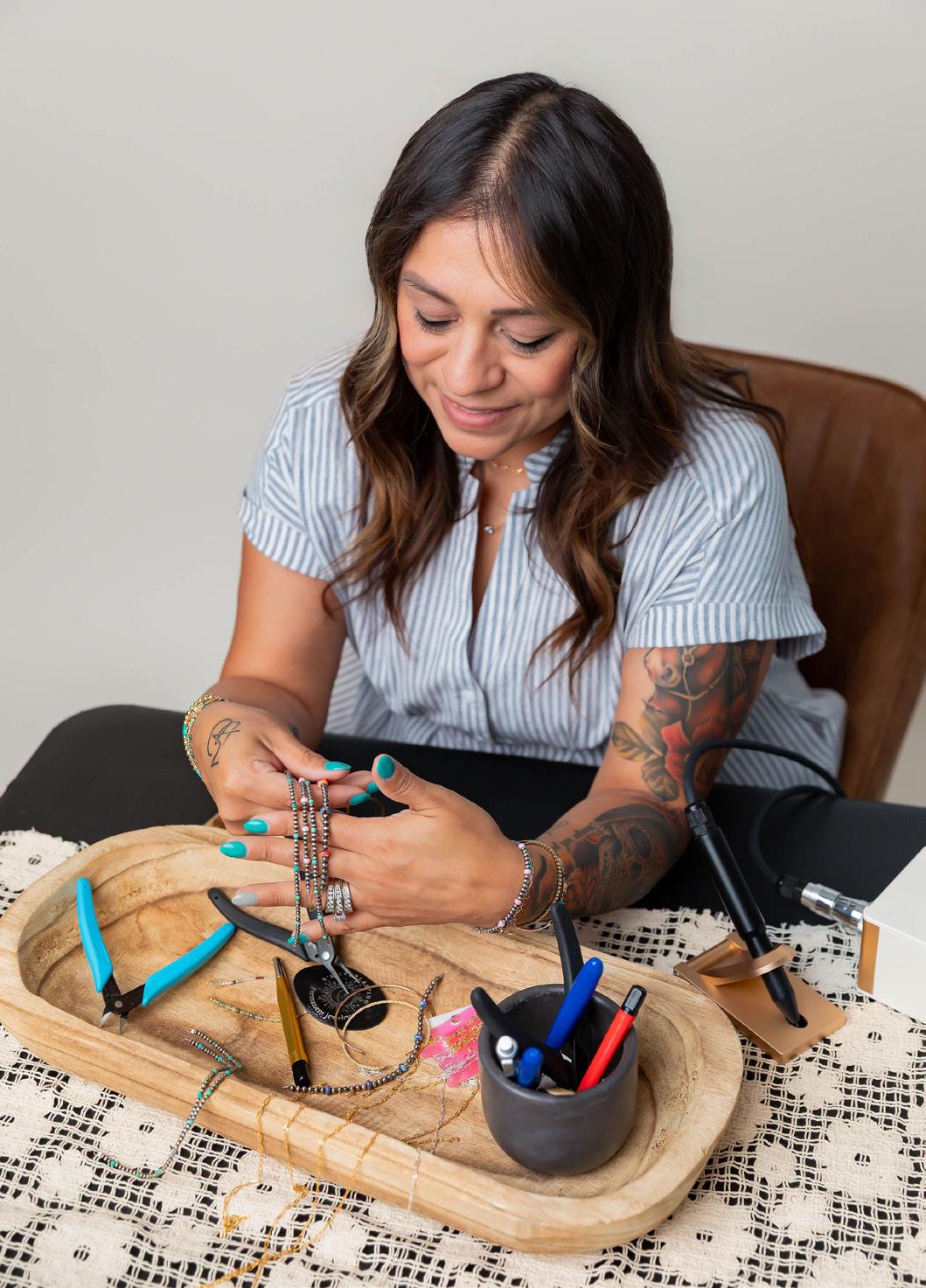
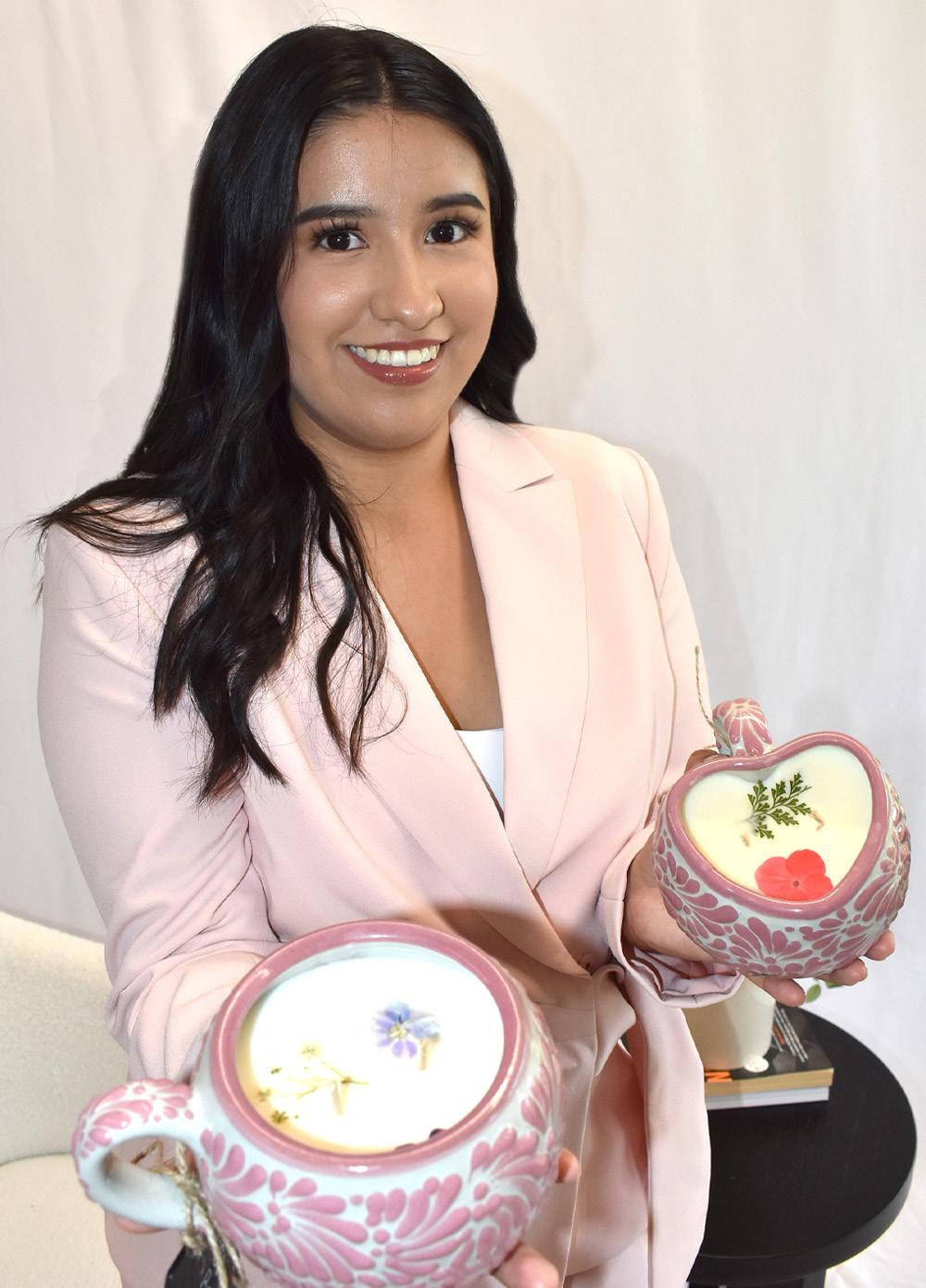

The car came at 114 miles per hour, crossing the median in a blur of metal and inevitability. In the seconds before impact, Mayra De Catalan was simply a mother driving home with her seven-year-old son and four-year-old nephew in the backseat. In the aftermath, she became something else entirely: a survivor learning to rebuild her life from the ground up.
Her son Thiago suffered a broken arm. Her nephew Marcos did not survive the collision. De Catalan was left fighting for her life with a shattered lower back, a bleeding stomach, a blown knee, a broken ankle, several sprained fingers and toes, scrapes and cuts and lost nearly 70% of her blood.
It took three back-to-back surgeries over a dozen hours before doctors knew if De Catalan would survive. While doctors worked, her family mourned Marcos and prayed. “My poor husband didn’t know if I was going to make it. My son almost lost his mother,” she recalls.
The road to recovery has been slow and painful. It has included repeated hospital stays, more surgeries, and excruciating pain that often leaves De Catalan out of breath and weak. De Catalan can no longer sit, stand, or walk for more than 45 minutes without needing to change positions. "I have to go from sitting, laying down to walking. I am constantly moving," she explains. “I have had to lay on the floor at my son’s soccer games. I remember this family walking past me, looking and asking, what is wrong with that crazy woman? I didn’t care. I was in
so much pain I had to take care of myself.”
The physical challenges were compounded by emotional devastation. “Not only am I grieving, but I am also in pain physically and mentally,” she says. “I prayed constantly because I was so angry. I prayed that I could forgive this man.”
Forgiveness became her turning point. "I didn't think I could do it, but one day I did. Once I did that, I was able to concentrate on other things like taking care of myself and being grateful for what I had left." Her gratitude is at the heart of her healing.
Bedridden and unable to manage the rental properties that were supposed to launch her and her husband's new business, De Catalan faced a stark choice: let everything collapse or find a new way forward. The couple pivoted quickly, creating automated systems and hiring employees and third-party vendors to keep their business running without her daily involvement. "I'm grateful that my husband always made saving a priority," she reflects. "Those savings allowed us to make these adjustments when we needed them most." The financial cushion and business adaptations gave her something invaluable: permission to focus entirely on healing.
With physical and financial survival secured, De Catalan found solace in journaling. What began as a repository for anger and pain gradually transformed into something else.
“I am grateful that I can wiggle my toes again, that my nails are growing long. I am grateful to see the sun come up. I transitioned from being angry to being grateful, and it changed my life.” Mayra De Catalan says, her voice steady despite the enormity of what those words represent.
“When I first started writing, it was a lot of anger, pain and sorrows,” she recalls of that first journal. “It went from ‘why me, God?’ to ‘what do you want me to learn from this, God?’”
She developed rituals around her gratitude practice. Every time she enters her home, she completes one small task—dishes, laundry, any chore that makes her feel accomplished. Then she writes about her gratitude for being able to do that one thing for her family. “I do it every time, no matter how many times I enter my house in one day.”
Sometimes she follows that with some minutes of meditation or affirmations that remind her of the progress she’s making and reads books centered on hope and overcoming obstacles.
"I started smiling again, feeling happy," she says. The practice helped her focus on what remained rather than what was lost, though setbacks were inevitable. Survivor's guilt plagued her, as did worry about burdening her son, who had to learn to care for a mother who could no longer do everything she once could.
The accident forced De Catalan to reconsider what mattered most. “I concentrated so much on being
“I am grateful that I can wiggle my toes again, that my nails are growing long. I am grateful to see the sun come up. I transitioned from being angry to being grateful, and it changed my life.”
a career woman, growing my business, the goals that were supposed to make me successful. Now I concentrate on what makes me happy. Being a mom, wife, being around my friends and family.”
Dark moments still come, especially when she sees boys who remind her of Marcos. She realizes that pain will never go away, no matter who many journals she fills or rituals that bring her peace. During these times, she relies on her support network, having learned to be vulnerable and articulate her feelings—skills she now uses to help her son process his own trauma.
Regular therapy, activities that help her feel stronger like swimming, and continued journaling anchor her ongoing recovery. Each small accomplishment, from wiggling her toes, watching the sunrise are testaments to her survival.
De Catalan's journals now number in the dozens, each one a record of her journey from victim to survivor who chooses gratitude daily. "I get to watch my son grow up. Make dinner for my husband," she says. "I used to do ten things at once. Now I’m grateful to be able to pick up this pencil and write, and be fully present," - words that capture the enormity of what she's lost and the power of what remains. In a life redefined by tragedy, these simple acts have become her greatest victories.
By Christina Fernández-Morrow Photos by Tar Macias
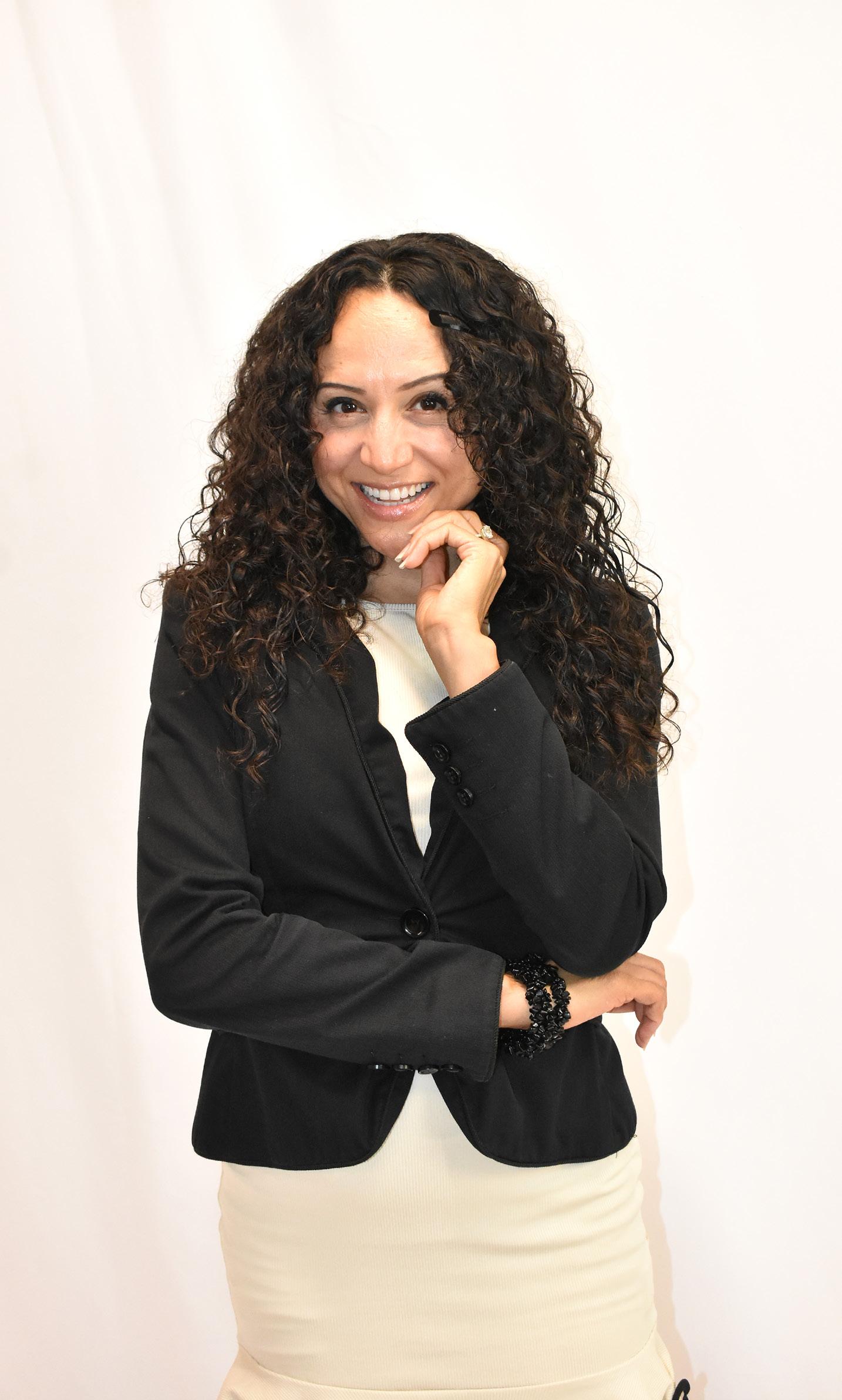

OCTOBER 25, 2025 – JANUARY 18, 2026
ANNA K. MEREDITH GALLERY
In the history of Mexican photography, Manuel Álvarez Bravo is a towering figure, without equal. Working with artists such as Frida Kahlo, Diego Rivera, André Breton, Luis Buñuel, Gabriel Figueroa, Octavio Paz, Manuel Álvarez Bravo: Collaborations, is a survey of the photographer’s career and projects he created with others.
SUPPORT FOR THIS EXHIBITION IS PROVIDED BY:
THE JACQUELINE AND MYRON BLANK EXHIBITION FUND


Marcela Hermosillo-Tarin and her husband had stable jobs, the kinds of careers their immigrant parents dreamed of for them. They owned a home where their children grew up with opportunities and examples the generations before them could only imagine. But one thing was clear: Her husband didn’t feel fulfilled.
“What does success and happiness look like for you?” She asked him. That discussion changed everything, launching Hermosillo-Tarin into the risk of starting a business they could both enjoy that gave them the freedom to chart their own future.
“I’ve learned that a happy marriage takes two fulfilled individuals working together toward something greater,” she notes. With that philosophy as their guide, they created a strategic plan, paid off their debt, downsized, and bought a 1908 Sears Catalog home in a neighborhood she believed in—a place that reminded her of her childhood, where you could walk to a coffee shop or chat with a neighbor on the porch.” That was how Serenity Designs Construction and Staging was born.
The business is a perfect complement to the skills they each bring to the venture. Hermosillo-Tarin has an eye for design, having helped stage homes for sale for friends and family, and her husband grew up in the construction business. Together, they fuse their strengths to breathe new life into properties that make welcoming homes for families, while also managing a portfolio of rental properties and an Airbnb. But like all dreams, it didn’t unfold without challenges.
The biggest challenge proved to be internal: learning to set boundaries. “Before launching my business, I said yes to everything— every board invitation, dinner, happy hour. But I realized that saying yes to everything meant saying no to myself and my future,” shares Hermosillo-Tarin. “Eventually, I had to learn how to start saying no in order to say yes to what truly mattered: my family, my health, and financial stability.”
She also had to embrace getting help for tasks she was programmed to believe should be her responsibility, like housework. Hiring a cleaning service initially felt uncomfortable, but she grew to appreciate the time it afforded her to work on her business and be with her family.
She also learned to scale her business strategically rather than aggressively so she could accommodate her full-time HR career. “Balance in my staging business means sticking to three staging packs. I could grow it more, but I genuinely love my HR work.” To make it all work, even within the parameters she established for her business, Hermosillo-Tarin credits her village.
“I work a lot, and I genuinely love what I do—but I can show up that way because I’m supported by an incredible village: my husband, my parents, and my siblings. If my village is strong, I am strong,” she expresses. This support system is also why she chose to open her business in Des Moines. “My support system is here, and it allows me to thrive personally and professionally.”
While the spaces she creates become places where cherished
memories are made, Hermosillo -Tarin is driven by what she’s built. “I love that I get to do this with my husband—he’s the one doing the hard work on the ground, and I’m more behind the scenes,” she explains of their division of labor. While he thrives using his hands to build tangible aspects of the business, Hermosillo-Tarin excels at building relationships.
This collaborative approach helped her overcome another hurdle: embracing a multifaceted identity. “I used to feel timid about sharing that I had a business. I thought I had to choose one identity—HR leader or entrepreneur. But over time, I’ve learned I’m not wired that way. That’s not something to hide—it’s something to celebrate,” she shares.
For anyone who might feel hesitant to dive into their entrepreneurial side, Hermosillo-Tarin offers encouragement rooted in cultural understanding. “As Latinas, we often carry so many expectations: to be everything for everyone, to be humble, to not take up too much space. But there’s power in choosing yourself, in betting on your vision, and in building something that reflects your story,” she urges.
Her advice is as practical as it is empowering: take the risk, even if you feel uncertain. Rely on your village, and don’t be afraid to nurture all parts of your identity to create a fulfilling and rewarding future.
By Christina Fernández-Morrow
Marquez
This

Acasual suggestion during a gap year transformed Rebeca Toledo into a dual entrepreneur who's revolutionizing beauty services and social media marketing in rural Iowa.
Af ter high school, Rebeca Toledo took a year off to figure out what she wanted to do. That’s when someone suggested cosmetology. Today, she owns Eclectic Esthetics and Eclectic Socials in Muscatine, Iowa. As one of the only estheticians with Salvadoran and Guatemalan heritage, she’s proud to offer specialized services for melanin-rich skin like her own.
“A lot of times you have to approach things differently because you heal differently than someone who has a lighter pigmentation,” she explains. “Being able to treat that as a professional, but also because I'm Hispanic, I understand it in a different way. Certain ingredients and products work differently on Latin skin, it’s the chemistry of things.”
Growing up, skincare guidance rarely addressed the needs of people with deeper skin tones, leaving many without proper care or understanding. Toledo brings both clinical knowledge and lived experience to her approach. She tailors her treatments accordingly, something she takes pride in offering to others who have long been underserved in this space.
Af ter graduating from Capri College in Davenport in 2013, she launched her career as an esthetician and permanent makeup (PMU) artist. “Technically, you're a tattoo artist,”
she notes, referring to procedures focused on the lips and around the eyes, like brow tinting. Her skills soon built a loyal clientele, mostly by word of mouth.
“When I first started, social media was not what it is now. You didn't really use it to advertise yourself or build a brand,” recalls Toledo. “A lot of what I learned was trial and error.” With little guidance, she figured out how to communicate, connect, and eventually convert followers into loyal customers. That became the catalyst for her second business, Eclectic Social, where she helps small business owners translate their social media presence into tangible connections. “I had to learn on my own, but I’m grateful for those experiences because they led to having a second business,” she shares.
Her clients include real estate agents, colleagues, clothing stores, bookstores, and more. She enjoys the variety. “Many times small business owners are your neighbors – people who aren't looking to be millionaires, they're looking to make their dream come true and have financial freedom.”
Among her success stories is Jessica Meyer, founder of Good Makers Market in Tipton, Iowa, who grew her business by implementing Toledo’s strategy combining reels, videos, and content specifically for the rural Iowa market. “It was so much fun, but not only that, it was great to connect with other people who were the reason I decided to do this,” Toledo states proudly.
Growth hasn’t always come easily. Before launching Eclectic Social, Toledo struggled with self-doubt and imposter syndrome. But lessons from her first business helped her push through, and she offers this hard-earned advice: “You cannot be shy. Nobody else is going to push your business the way you will. Nobody. You've put in the time, the financial backing, the effort. If it doesn't do well it’s going to directly affect you. So you don't have the luxury to be shy.”
Struggling postpartum, she credits therapy with helping her through that difficult period so she could focus on her businesses. “It was the catalyst for being a better communicator. For any business owner, you’re sharing a piece of yourself with your
market and your community, and it’s vulnerable.”
When discussing how she overcame, she gives a brave and deeply personal answer: “I think the biggest defining point in transforming my business and becoming better at building relationships was when I started therapy. For a while, I struggled with mental health and it's not something very commonly talked about in the Hispanic community.”
From a gap year suggestion to two thriving businesses, Toledo's journey illustrates how personal challenges can become professional strengths, and her success extends beyond her bottom line. In rural Iowa, where diverse business ownership is still emerging, her story reminds us that sometimes the most powerful business strategies come from simply being authentically yourself and having the courage to serve others who share your experience.
By Juan Forneau

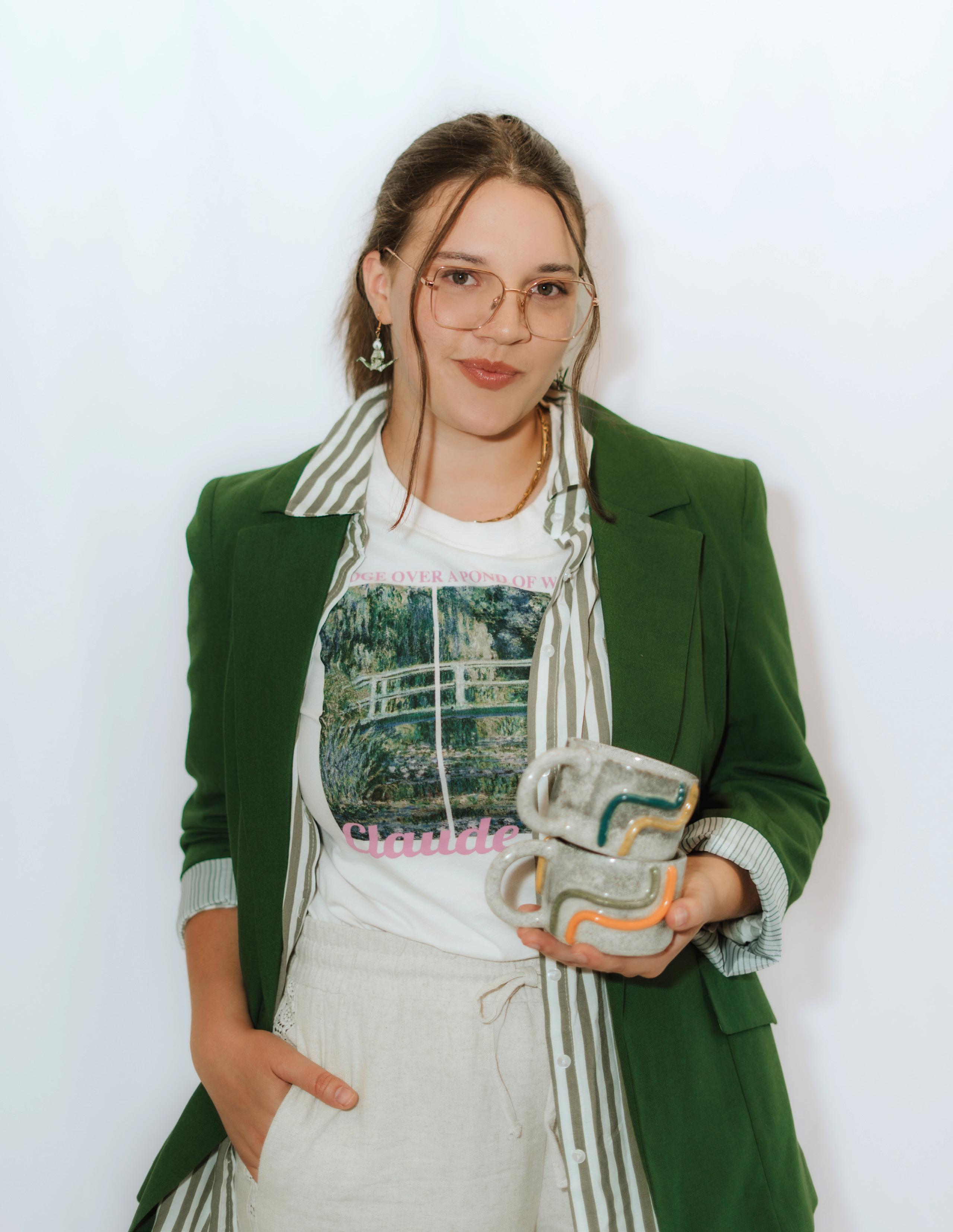
Ceramics artist Adriana Senges Nicolini believes art is for everyone. Her vibrant pottery pieces aren't just meant to be admired; they're designed to be held, felt, and experienced by people of all abilities.
As a renaissance woman who painted, performed theater and even played with the orchestra in her native Uruguay, it’s no wonder that when she moved to Iowa she explored a new form of art: pottery. Today, she is not only creating pieces inspired by her life and culture, she is teaching Central Iowans how to master potterymaking in English and Spanish.
“I would like to form a community of pottery artists because I don’t know any Latino ceramics artists,” she says thoughtfully.
In the meantime, she is slowly making a name for herself as a vendor at events across the metro. From Potteryfest to handcraft markets, Senges Nicolini can be seen surrounded by brightly painted mugs, vases, bowls and even sippy cups. What sets them apart from other ceramics is the distinctive texture she imparts on each of them.
The texture serves multiple purposes. It makes the pieces fun and unique, but it is also intentional and meaningful.
“My work explores the idea of art being for everyone. I use vivid colors to represent my Latina heritage, but
I also incorporate bold textures to enhance the tactile experience,” she explains. “Being the daughter of a visually impaired mother made me realize that my art should not be solely visual, it's meant to be held and felt, as our hands perceive stimuli differently.”
This philosophy came to life in Senges Nicolini’s first piece from her collection selected for an arts exhibition that she made in honor of her mother. “It’s a vase with two hands holding three smaller vases each with a phrase in Spanish braille,” she describes. While she ships her work across the globe, this piece holds special meaning. She hopes to share it with her mother on her next trip home.
For now, Senges Nicolini is focused on building community in Iowa while growing her business, Adri-Arts. Currently sold through Kunzler Studios, from where she teaches and creates, she hopes to have her own studio one day.
“I would like my own space to grow more as an artist and teach a community of Spanish speakers. I also speak Portuguese, so I would love to teach in Portuguese, too,” she shares. As a new Iowan, she knows this dream will take time to realize. She is thankful her husband shares her vision and is her biggest cheerleader as she gets there. From buying her extra bags of clay to loading and unloading at events, he is by her side and his encouragement keeps her motivated.
“The language was challenging at first, and the uncertainty of my future as an artist in an unfamiliar country was overwhelming. Being an immigrant and attempting to make a living through art is not an easy task, so I am incredibly grateful for my husband’s support,” she notes.
As she advances her English, expands her network and acclimates to Iowa winters, one thing remains constant: Senges Nicolini is well on her way to making ceramics accessible to all who want to experience it – from those learning to create it, to those who want a beautiful, handmade, one-of-a-kind piece.
Her textured pottery serves as a bridge between cultures and abilities, ensuring that art truly can be for everyone.
By Christina Fernández-Morrow
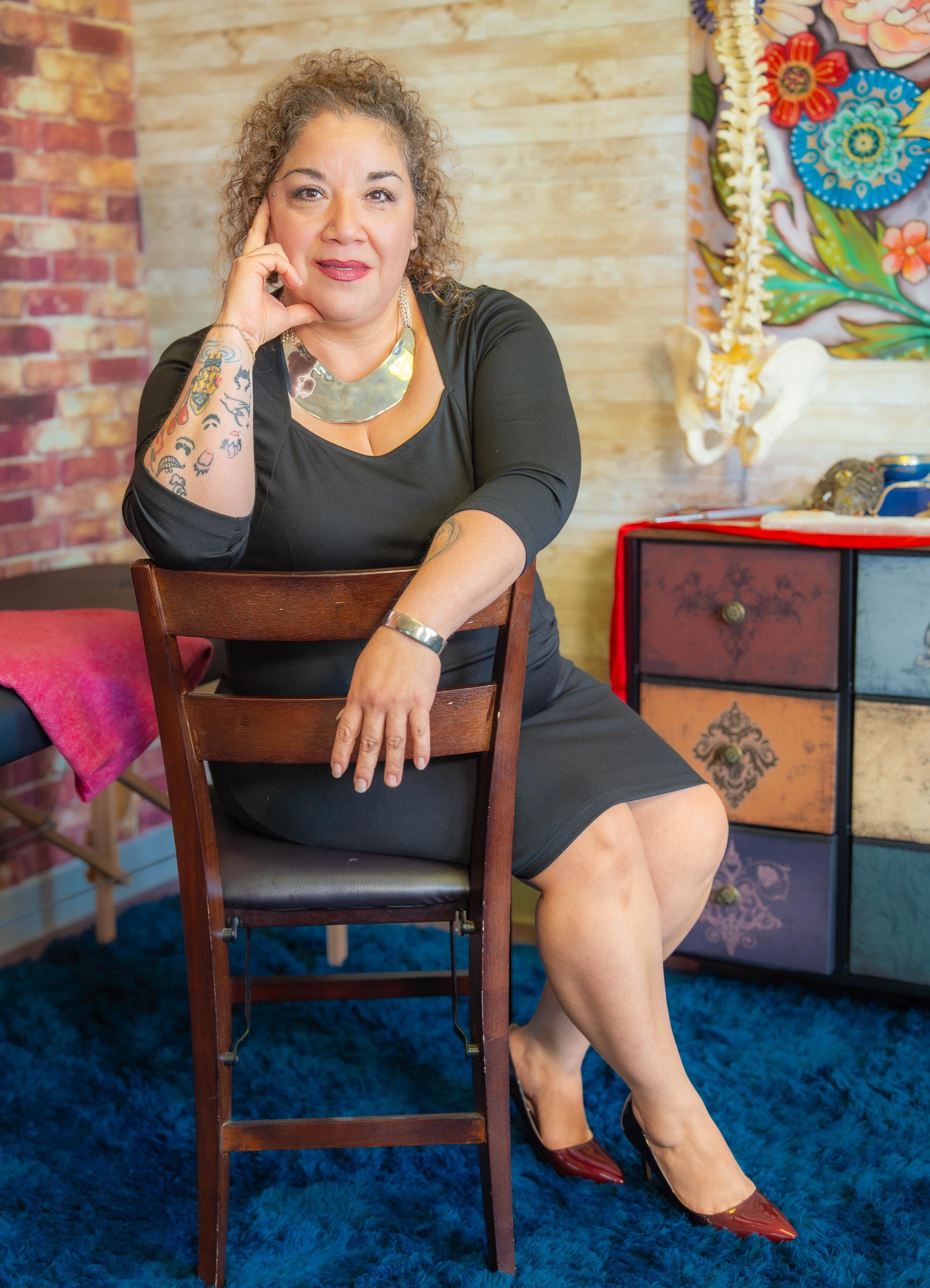
Dr. Lidia Gomez designed Mi Casa, her new wellness center in Bettendorf, Iowa to be a safe, welcoming space where people can heal. “I wanted a place where somebody could go and work on whatever they were ready to work on without feeling judged or criticized, without feeling awkward or out of place,” she shares. Inspired by the feeling of home, it is an extension of herself, someone who has wanted to help others for as long as she can remember.
Her path toward holistic health began unexpectedly. “I wanted to be a doctor,” she laughs. “An OBGYN or pediatrician.” An injury when she was fifteen years old changed all that. “I hurt my back when I was very young, and tried everything to find relief,” she recalls. When medication and physical therapy failed, her boyfriend took her to see a chiropractor at Palmer College of Chiropractic. The adjustment not only freed her from debilitating pain, it opened her eyes to a new career option. She enrolled at Palmer and has been practicing chiropractic care for twenty-five years.
Through her work, Dr. Gomez discovered the power of the mind-body connection and how it impacts every aspect of life. “For somebody to heal emotionally, you have to be physically free of pain,” she says. She believes that releasing people from pain allows them to focus on the other parts that need healing. This philosophy guides her approach at Mi Casa.
The center offers a range of services from meditation groups to chakra balancing, sound baths and fitness classes for all levels, Dr. Gomez strives to meet patients and clients where they are and allow them to lead their own path towards becoming their strongest and healthiest selves. “The center incorporates a lot of different aspects of healing. You can start with the physical, mental or spiritual side,” she explains.
While she’s excited for all the services and loves that so many people have been open to the classes and services, she realizes it’s not how most people approach health. “It’s a matter of people knowing we’re here and wanting to try something new.”
For example, the infrared sauna is unfamiliar to most of her Hispanic clients, even though it provides benefits like improved circulation and immunity, detoxification, muscle and joint pain relief, and stress reduction. These benefits complement the energy work she’s incorporated into the center.
Energy work is gaining popularity because of platforms like TikTok, but it is rooted in her culture. She references her sister, a curandera who has a business in Texas, and serves clients from all backgrounds. “But we’re in the Midwest where energy work like limpias isn’t common,” she says. “But if I explain it as somatic energy healing, people understand that because of the internet.” This careful balance of cultures has been part of how she managed her business long before
she opened Mi Casa.
This is why all classes are offered in English and Spanish, following the bilingual nature of her chiropractic clinic. All the practitioners speak and understand both languages, which is one of the requirements of practicing at Mi Casa, to ensure language is not a barrier to care. Something else that makes this center unique is that while the classes are open to everyone, all the sessions are led by women. “Most of my clients are women and come to me because I am a bilingual female. There aren’t many in the area,” says Dr. Gomez. “When you’re going to someone who is going to touch your body, there is a level of intimacy. Knowing there is a female builds trust and is more comfortable and I think that has helped.”
No matter her patients’ backgrounds, Dr. Gomez’s goal remains steadfast. She wants everyone who walks through Mi Casa’s door to feel like they are exactly where they belong and feel better than when they arrived. “If you work with the community and you make them feel comfortable the community will react and take care of that business,” she advises. So the next time you feel out of balance or low on energy and think about reaching for an energy drink, Dr. Gomez hopes you’ll look for holistic ways to take care of your entire being from the inside out.
By Christina Fernández-Morrow
by Wezz De La Rosa








No community is complete without successful small businesses and entrepreneurs. JPMorganChase is committed to helping businesses of all sizes at every stage of maturity achieve their financial goals.
Learn about our business programs for entrepreneurs at: chase.com/business/coaching-for-impact

Maria Rocha’s story is one of resilience, rooted in humble beginnings and fueled by purpose. Born in Guanajuato, Mexico, and raised in the Midwest as one of ten siblings, Maria grew up in a trailer surrounded by hard work, love, and early responsibilities—like translating documents for her parents before she fully understood them. Her childhood taught her strength and survival, long before she ever considered becoming a leader.
At 13, Maria returned to Mexico and reconnected with her roots. That trip awakened a deep appreciation for her culture and sparked a sense of purpose that would guide her future. When her father was diagnosed with cancer, Maria became his translator, caretaker, and ultimately, the one to walk him into hospice. In her grief, she made a vow—to build something better for her family.
Driven by that promise, Maria sought out mentors who helped her unlock her potential. Today, she is a successful Latina entrepreneur, coach, and real estate leader with over eight years of experience. She’s helped more than 300 families become homeowners, led one of Iowa’s Top 10 eXp Realty teams, and earned recognition including NAHREP’s Top 250 Latino Agents and Real Producers 40 Under 40.
Maria’s impact goes beyond real estate. She’s created spaces in Des Moines for training, connection, and mentorship—especially for those without a clear roadmap. Her mission is to serve, lead, and break generational cycles. She empowers others to rise, just as others once believed in her.
For Maria, it’s not just about selling
homes—it’s about building legacy and helping others discover their power. Her message is clear: you don’t have to be ready to start. Start scared. Start messy. Just start. Because purpose can be born from pain—and legacy built from resilience.

As an immigrant from Ecuador, Graciela Van Wyk fumbled through understanding the US financial system. Even with a degree in international marketing from her home country and over a decade as a life insurance agent, planning her financial future felt overwhelming.
She knew she wasn’t the only one struggling. This sparked a revelation, a vision that she could do more to make sure others had support with the tasks she was learning on her own.
“My motivation to start my business as a financial advisor comes from personal experience, cultural identity, and a strong desire to serve and empower underserved communities,” she states. “I didn’t see anyone talking to us, educating us. So I decided to become that person.”
Transforming desire into reality wasn’t easy. For Van Wyk, it took months of preparation and sacrifice. To become a licensed financial advisor, she needed to pass several rigorous exams that demanded hours of preparation and hundreds of dollars.
Van Wyk started with the General Securities Representative Qualification Examination required to buy and sell stocks, bonds and mutual funds. The nearly four-hour test often requires roughly 80-100 hours of studying using comprehensive study materials and practice exams.
Van Wyk followed that up with the Uniform Combined State Law
Examination which would allow her to give financial advice. This two-and-a-half-hour test is especially difficult due to the detailed state regulations and complex investment rules. Van Wyk had to dedicate nearly 100 hours of study time and nearly $200 on this exam alone.
The time and money invested were just the beginning. Once Van Wyk was licensed, she faced an even bigger challenge: building a client base.
“It was tough getting people to trust me, especially in a market where financial advisors didn’t look or sound like me. I had to build everything from scratch - my brand, my client base, my voice,” she recalls. But that changed as Van Wyk expanded her circle, attending events hosted by the Latina Leadership Initiative and the Black and Brown Summit in West Des Moines. Over time, she became known and trusted within her community, slowly creating a book of business.
“Now people come to me. They know I’m here for the right reasons. The hard part isn’t proving myself anymore, it’s keeping up with the growth and still giving everyone the attention they deserve,” she shares.
Today Van Wyk has replaced those hours filled with study guides and test prep materials with client appointments and home visits where she takes time educating them on how to build and protect their assets. For her, this personal approach feels natural, rooted in cultural values and lessons she learned at home.
“My culture taught me to work hard, treat people like family, and never forget where I come from. I understand their fears, their goals, their dreams, because they’re mine, too,” she explains.
This connection is the anchor of her business. As the Latino community grows, especially within the small business sector, Van Wyk hopes they continue to trust her to help them plan for their financial futures.
“My mission is simple: to guide families, especially those who feel overlooked, toward financial confidence,” states Van Wyk. “I do it in Spanish, with empathy, and always with heart. Because wealth isn’t just about numbers, it’s about peace of mind, dignity, and legacy.”
When it comes to serving others, those long days don’t feel like work when she knows she’s fulfilling her purpose while helping her community secure their future.
By Christina Fernández-Morrow
Illustration by Marissa Hernandez

When I first arrived in the U.S. at 24, I faced all the challenges that come with starting over. Every morning, I woke up early and walked nearly an hour to work because I had no car and no public transportation. After a full shift, I'd catch a bus to my second job at a hotel, often working until midnight before running home in the dark, scared but determined.
Safety wasn’t my only concern. I was afraid to speak up for myself when mistreated at work, to mispronounce words, or make mistakes.
When I visited my sister in Iowa, everything changed. I met my husband, fell in love, and decided to start over surrounded by empowered, positive people who inspired me to dream bigger.
I focused my job search on anything that mentioned Spanish, thinking: if you need someone bilingual, that's my skill, I can learn the rest. I applied for positions without fully understanding the job description, joined mentoring programs and met mentors at networking events. I learned that empowered, inspirational people are everywhere; you just need to recognize when someone pours value into your life and carry those lessons forward.
While working as an advocate for domestic violence survivors, I saw women staying in unsafe situations because they didn’t feel financially free to leave. That experience opened my eyes. I realized that to make a real impact, I needed to help
people gain financial confidence and independence.
That led me to become a financial advisor who believes that people matter more than numbers.
My approach isn’t just about spreadsheets and rates of return. I treat my clients the way I would want someone to treat my parents, my family, my loved ones - with consideration, respect, and integrity. To me, respect isn’t negotiable; it’s a daily practice.
A couple who had lived in the U.S. for years but never set up retirement planning told me, “We’re never going to retire, we’ll work for the rest of our lives.” I took time to ask questions and listen. No one had ever sat with them to explain how financial tools work. As our conversation continued, the real concern became clear: they had a son with disabilities who depended on them entirely. Retirement felt impossible because they didn’t know how they could stop working and still provide for him.
That changed everything. I explained how life insurance could offer long-term protection for their son, and how retirement planning could still be part of their future with the right strategy. For the first time, they felt empowered. I didn’t just talk about numbers, I helped them feel seen, heard, and cared for.
Every day, I’m learning. I still have an accent and laugh when I mix up words. But I no longer see that as a weakness - it’s a part of my strength, my story, my voice. What matters is
that I show up with purpose, care and commitment to helping others.
Financial Strategies Business Owners Often Overlook (But Shouldn’t)
As a financial advisor partnering with business owners, I often see missed opportunities that could protect businesses, reduce taxes, and build long-term wealth. Here are six essential tools every entrepreneur should know:
1Your Business Is Not a Retirement Plan
Many owners assume their business will be their nest egg, but markets change, buyers back out, and exit plans don’t go as expected. Diversify with a retirement plan tailored to your personal goals.
2The Right Retirement Plan Reduces Taxes and Retains Talent
Beyond SEP or SIMPLE IRAs, you may benefit from a Solo 401(k), Safe Harbor 401(k), or Defined Benefit Plan. The right choice helps you save more, reduce taxes, and incentivize employees.
3Disability Insurance: Your Overlooked Safety Net
If you are injured or become ill, how long could your business run without you? Disability insurance protects your income and peace of mind so your business and lifestyle don’t grind to a halt.
4Key Person Insurance Protects More Than Profits
If your company relies on you or a top employee, their sudden absence could disrupt everything. Key Person Insurance
provides funds to stay operational and navigate change without panic.
5
Business Continuity Planning Shouldn’t Wait
What happens to your business if something happens to you? A continuity plan and buy-sell agreement can protect your legacy and ensure employees and loved ones aren’t left unprepared.
6
Benefits Aren’t Just Perks; They Drive Growth
Attracting and keeping top talent is challenging. Well-designed group benefits like life, disability, supplemental, or retirement options give your company a competitive edge. These aren’t just expenses; they’re tools for long-term growth and loyalty.
Financial advice isn’t just for the ultra-wealthy, it's for the determined, the strategic, and the dreamers. It's for people like me and you, who understand that building wealth is about more than money; it's about security, dignity, and the freedom to care for those we love. Whether you're a business owner overlooking key strategies or a family who's never felt heard by financial institutions, you deserve an advisor who sees you, understands your challenges, and respects your dreams.
Let’s grow, one smart step at a time.
By Christina Fernández-Morrow
Photo by Tatiana Peña
Disclaimer: This article is for information purposes only, but not individualized financial advice.



At the heart of Lupe's Flowers is a commitment to creating unique, custom-made arrangements that capture the essence of each individual customer's needs and preferences.
Whether it's a romantic bouquet for a special occasion, a vibrant centerpiece for a corporate event, or a thoughtful sympathy arrangement.





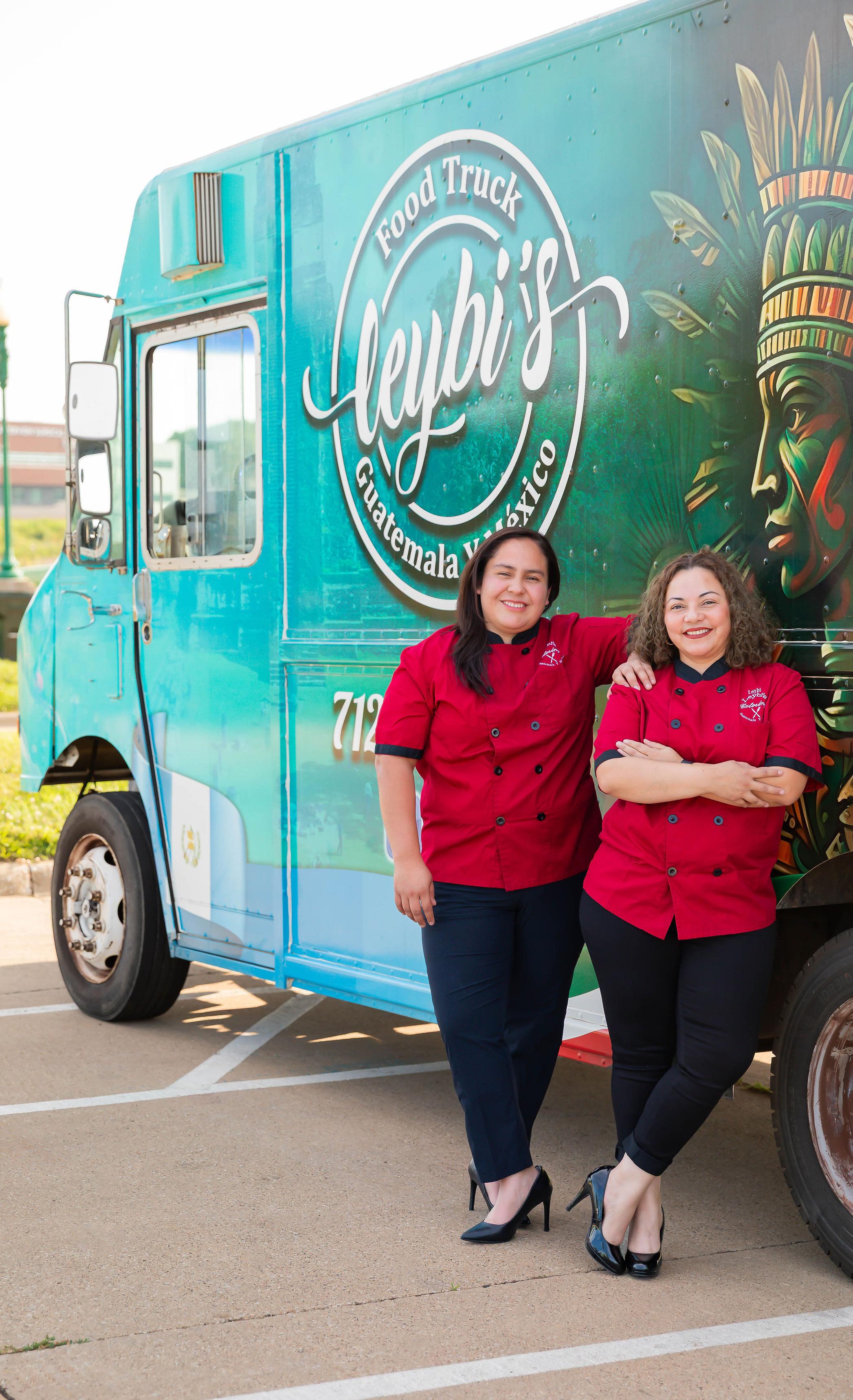
On a quiet corner of Sioux City, a food truck parked on 7th Street offers more than authentic Guatemalan flavors— it tells a story of love, migration, and entrepreneurship. It is a symbol of shared dreams that proves love, passion, and authentic flavors can build a marriage and a thriving business that feeds a community.
Leiby Rogel and María José Pereira, both from Guatemala, turned a long-distance relationship into a business that feeds both the soul and the stomach. Today, their venture, Leiby’s Food Truck and Catering, LLC, is not only a local favorite but also a symbol of artisan food that honors Central American roots.
Rogel, who developed a passion for cooking thanks to her family's influence, met Pereira through social media in 2014. At the time, Rogel was in Iowa and Pereira was living in Guatemala. They maintained a long-distance relationship for five years while planning a future together, until they married in 2019 in the United States.
Pereira admits she didn’t know anything about cooking before meeting Rogel. But since they planned to open a food business from the start, she took a pastry course while still living in Guatemala. By the time she arrived in the United States, Pereira had developed an appreciation for the science of baking and cooking. “I started discovering myself and learning more about food than I ever did in my home country,” Pereira recalls. She enjoyed it more than expected and was happy to
expand her knowledge alongside Rogel.
In 2023, they officially registered the business under the name Leiby’s Food Truck and Catering LLC and began offering catering services with preset menus. They saved and reinvested every cent earned through catering into taking their dream to the next level. Finally, after saving $50,000, they purchased and wrapped a fully equipped food truck with all the features they had been hoping for.
According to the 2020 Census, Sioux City has a population of 85,797, of which 22% is primarily of Mexican origin. To connect with this audience, Rogel decided to include Mexican dishes on the menu, as they would be more familiar than Guatemalan food. This blend of food and culture is reflected in the truck’s design, which proudly features both the Guatemalan and Mexican flags, representing the rich diversity within their community.
If you search online for "Guatemalan food in Sioux City," Leiby’s Food Truck is the first result, for good reason. They’ve earned a strong reputation thanks to their authentic, handmade approach.
Rogel explains that their longanizas (Guatemalan sausage), chorizos, and tortillas are all made by hand. “We put in a lot of time and love to offer the highest quality to everyone, no matter where they come from,” she emphasizes. Their unique flavors—far from the supermarket standard—have won over many customers, especially construction workers.
The truck operates at Yummi Blox, a food truck lot filled with locally owned trucks, located at 700 W 7th St, an area known for its diverse residents and small businesses. They make it easy for everyone to try their food by accepting credit card payments, cash, Venmo, and Zelle.
Rogel and Pereira agree that to keep a business running, you must show

empathy toward your customers, regardless of where they come from. For them, transparency is key, which is why they’re careful to ensure that every client receives exactly what’s promised: quality.
“A business is like life… if it doesn’t have passion, there’s no trust,” Pereira says.
To make this happen, the couple has no days off. From Thursday to Sunday, they operate the food truck from noon to 8:00 p.m. The rest of the week is spent shopping and preparing the food.
“People think we have days off just because they don’t see us out there, but we prepare everything by hand. The only thing store-bought might be the bread,” Rogel comments.
Their most popular dishes require hours of commitment. The churrasco,
which takes longer to prepare, is only served on weekends. The birria tacos, which is popular at lunch time, takes hours of simmering to achieve the perfect tenderness and are only sold on Thursdays and Fridays.
Seven days a week, Leiby Rogel and María José Pereira pour their hearts into handmade sausages, slow-simmered birria, and fresh tortillas. Their success isn't just measured in satisfied customers or sold-out weekends—it's in the way they've honored their Guatemalan heritage while embracing their new community. Ultimately, for them, food is a way to share who they are. “Every dish carries a little piece of our story,” Rogel says with pride. Their food truck stands as proof that when you lead with love and authenticity, success follows.
By Karlha Velásquez

The Hebrew word "firgun" means to be happy for someone else's success. This concept became the name and driving philosophy behind Fiorella Peterson's West Des Moines interior design business. "Being genuinely happy for others, especially when you're hurting, isn't always easy," says Peterson. It's a lesson the Peruvian immigrant has learned through building her business while navigating depression, anxiety, and the challenges of starting a life in Iowa. For Peterson, who immigrated at 23, this principle has become her compass through entrepreneurship, personal struggles, and the daily work of building a healthy life far from home.
When Peterson moved to Iowa she didn’t speak English, couldn’t drive, and was a world away from her family. Her husband, a realtor who saw her talent and potential, stood by her every day, encouraging her to chase her dreams—even when she didn't think they were achievable. “In the beginning, I struggled with confidence. I dealt with imposter syndrome questioning whether I was truly capable,” she recalls of 2021 when her business was just beginning.
Today, Peterson is the founder of Firgun Interiors, an interior design consultancy specializing in residential and commercial design, furniture selection, and home staging. To top it off, her parents, who taught her how to “dream big and move forward with faith” from their own experience as business
owners, now live in Iowa with her. Firgun honors their resilience by uplifting others through her work and bringing them true joy - the value she turns to when navigating challenges.
Finding Calm Through Faith, Music, and Movement
Peterson is open about experiencing depression and anxiety, particularly during her transition to life in the U.S. She approaches mental health with intentionality and compassion. “I pray, praise and listen to music that calms my soul,” she declares. When cooking or taking a shower, she dances. She used to be a Zumba instructor, something she hopes to return to once she can find time amidst the busyness of entrepreneurship and her full-time job at Homemakers. When difficult emotions surface, she leans into the meaning of Firgun. “It’s a daily practice. Through love and gratitude, and by relying on God, I’m learning to live it more fully. That’s the spirit I want to bring into every project and every relationship—genuine joy for others, and a heart that lifts others up. I remind myself that I am blessed."
Wellness from the Kitchen to the Park
Prioritizing wellness requires commitment of mind and body. “I walk a lot at Homemakers and I go to the park after my shift for a walk because that connects me with nature,” she shares. “I try to eat a lot of fruits and vegetables. I know
that that makes a big difference.” Her favorite local place to stock up on healthy food and snacks is Gateway Market, especially their chicken corn tortilla soup and sushi rolls.
Peterson also reduced her caffeine intake after noticing its impact on her mental well-being. “I used to drink two cups of coffee every day, but it made my anxiety worse. Now I stick to apple cider juice.” While she was previously vegan, she now eats meat in limited quantities, recognizing this is better for her health and animal welfare concerns. These lifestyle choices help her feel healthier and concentrate on her business.
Peterson’s approach to financial wellness is grounded in humility with a focus on steady growth. “Money doesn’t drive me. I’m not trying to get rich,” she says. “I want just enough to care for my family and the freedom to support those in need.” She reinvests earnings from Firgun Interiors into new furniture and classes to keep building her skill set. She makes sure to invest in herself, which isn’t something many young entrepreneurs prioritize, but it sets Peterson apart.
She dreams of one day hiring friends from past jobs and design classes. “I want to encourage them to pursue their own dreams,” she notes. “My dream is to build a business that supports others, creates meaningful opportunities and connections,
and serves as an inspiration for anyone who wants to start their own business, especially those who face the challenges of being from another country.”
Every July 17, Peterson marks Firgun Day, inspired by the Israeli holiday honoring selfless joy for others. “It’s simple,” she says. “You give someone a genuine compliment. You tell someone you admire their strength. You help lift others up. That’s the spirit I want to share through my business and through my life.”
In a world that often celebrates individual achievement, Fiorella Peterson has built her business and life around a different principle: lifting others up lifts everyone. As she continues growing Firgun Interiors and supporting her community, she's living proof that dreams planted in foreign soil can bloom into something beautiful. “This journey has been one of growth, faith, and community and I’m just getting started,” she shares.
By Lily Allen-Dueñas

Evelyn Lopez knows the formula she wants for a happy life: a successful business that allows her to be a good mother. From her business, Pinkgirls Estudio, she does just that as she applies individual lash extensions with surgical precision, building beauty one lash at a time for clients in Ottumwa, Iowa.
It all started in 2022, when a major life change sparked a new vision for her future. Lopez became pregnant with her first child and knew that she did not want to have a 9-to-5 job while working for someone else, with limited opportunity for growth. She wanted to nurse her child, be available if he became sick and spend time with him as he grew up. “I wanted to earn money, without neglecting my baby,” she recalls. “There was a course to learn how to do lashes in Des Moines, and I decided to go back to school.”
Af ter earning her certification, it was a slow start. Lopez practiced in her living room and only had one regular client for a while. She was able to care for her baby, but the lack of customers was frustrating. “My job is beautiful, but there is a lot of competition. There are so many lash businesses that charge far below what I think is fair. So many people choose the cheaper option,” Lopez explains. She wondered if she should lower her prices to help her business grow, but decided instead to focus on building a brand that would show customers the value of her skills.
Rather than compete on price, Lopez developed a three-step strategy. The first was giving her studio a proper home. She purchased a shed and painted it pink. She designed a
simple layout with a waiting area, a workspace, and a photography station. Once she was happy with the transformation from a shabby shed to a vibrant, inviting studio, she was ready for the second step: attracting new clients.
She took a welcoming approach. Lopez invited women to her studio for free services. The offer was successful, especially for those that had bad experiences in the past. Lopez emphasized impeccable craftsmanship, limiting appointments to a maximum of five clients per day to give everyone the time they needed. The plan allows her to pay attention to detail. “Lashes need to be applied slowly, with precision. If they are applied too close to the eye, they can cause an eye infection,” she explains. “The glue, the lashes, they need to be of good quality.”
Once her studio was established and client flow began, Lopez was ready for the final step: promotion. Lopez posted videos on her social media, and they soon began creating traction. “Posting helps me connect with my clients. I do not just share before and after videos,” she says. Her approach is personal and less conventional. “I make pranks. I share my funny side.” Lopez explains. On Halloween, she wore a scary clown mask and filmed a client’s reaction. “She had no idea what she was going to see when she opened her eyes,” Lopez says with a laugh. “We have a respectful, but fun relationship. We have a good time together.”
Now that Lopez has built her brand, people from nearby towns like Burlington and Oskaloosa are discovering her business. But even with all the promotion, her schedule
isn’t packed every day, and Lopez is okay with that.
Recently, Lopez gave birth to her second child. She now works a few hours, a few days a week so she can care for her children while her partner works at a nearby factory. She has time for the things that matter to her, like cooking, and meal prepping for busy days, which makes her happy. Even when she has a full day of appointments, she spends her mornings and evenings with her family.
This careful balance between work and family means everything to Lopez, who moved to the United States from Guatemala when she was 12 years-old to escape from the violence in her country. For this JEFA, safety and security for her family are the driving force behind her work ethic and values.
Today, from her carefully constructed studio, Lopez has found the success and family time she was searching for. It has been a slow, steady process, but Lopez is proud.
“I am so happy that I did not give in when I only had one client, that I believed in myself, and that I kept on going,” Lopez shares. “To succeed, I had to learn to resist failure and tolerate the loneliness that comes with having my own business. I have learned many things thanks to that.”
Story

Salvador / México
Alicia Pineda-Galvan felt the weight of sickness and despair pressing in on her. Suddenly, through her tears, she heard clear, steady drumbeats. She stopped crying and looked around, searching for the source of the sound. There was none. “I’ve always been good at not needing physical or scientific proof and trusting what I know. I trusted my inner knowing that something was trying to guide me,” she recalls of that moment.
For nearly a year she meditated and prayed, trying to understand the meaning behind the drums. Gradually, the message became clear: her ancestors were urging her to escape her abusive marriage. It was the first time she felt empowered to take the steps she needed to get back to physical, mental and spiritual health. “I was very isolated as a child growing up Jehovah’s Witness. This felt different, very much aligned with my heart. It felt like I wasn’t alone anymore, so I trusted it.”
Pineda-Galvan wasn’t sure where to start. So, she found a therapist who helped her process her trauma and learn techniques to center herself. As she learned to navigate her own heart center, she began noticing others struggling in similar ways. "What I went through alone, I never wanted to see another person experience if I could help it," she says.
Drawing on the tools she learned in therapy and what she uncovered
researching ancestors and spiritual healing; she began creating protection items. She used carefully selected stones in jewelry, and crafted smudge bombs and simmer pots using a combination of plants, fruits and herbs to enhance mood and infuse personal spaces with positive energy.
Pineda-Galvan acknowledges that understanding what you need for spiritual cleansing and ancestral guidance can be tricky. It requires deep self-knowledge and unshakable faith to trust yourself.
“Spirituality is trending, but it’s still taboo,” she warns. “There are several areas you can dive into, but it can be dangerous if you are careless with what you are doing and don’t know yourself deep enough for it to be effective.”
Distinguishing between helpful ancestral guidance and messages rooted in unresolved trauma requires careful attention, she explains. "It can be hard to distinguish their wisdom from their pain," she notes, comparing the dynamic to navigating advice from living family members. Ultimately, she advises to trust one's inner-knowing of self while being open to spiritual guidance. She describes a powerful experience that was pivotal in reinforcing these beliefs.
She vividly recalls her first limpia, a cleansing ritual using a raw egg to draw out negative energies, bad luck, and imbalances. “The egg got hot within three minutes,” she says. “That’s how I knew it was absorbing that [negative] energy,” she says. This ancient belief practiced throughout North, Central, South America and parts of Africa helped her better relate to the Salvadoran and Mexican ancestors that were guiding her. It reinforced that she was on the right path, healing
through methods used for generations and across cultures. From there, Pineda-Galvan's healing accelerated, though the road ahead remained challenging.
Leaving her dangerous marriage and facing the world as a single mother was painful and difficult. As she gained her physical and mental strength, her transformation was obvious. Friends wanted to learn from her experience. This inspired Alicia to formalize her healing practices, turning personal advice into workshops that mirrored the

rituals that had impacted her own recovery.
“I wanted to start a business to show people how to take the reins back of their life.” That idea awakened her dream of entrepreneurship. “I was the root of a lot of dynamics that put everyone else above myself, this business forced me to practice what I preach.”
Pineda-Galvan credits La Jefa’s Essence, the business she started in Council Bluffs where she was raised, with helping her clarify her values around family and
community service. She offers services like house blessings, card readings, egg cleanses, and cord cuttings, while also connecting clients to resources, networking opportunities or mentors who can enhance their healing. “I love being an activator in my community, helping connect and empower others to elevate their business and personal development to take the reins of their inner jefa/jefe essence,” she says of the influence that named her business.
This commitment to service is rooted in radical inclusivity inspired by examples of unconditional compassion throughout history, including the Bible. "When you love those who’ve never experienced it before, you leave a ripple effect you can't even imagine," she reflects. Though this approach sometimes draws criticism, Pineda-Galvan remains focused. Transforming her own suffering into wisdom has not only been profoundly meaningful, but also deepened her sense of purpose.
Today, the woman who once heard drums in her darkest hour now helps others listen for their own guidance. "I've never felt closer to source than overcoming this pain and walking through life everyday embodying the lessons I've learned," she says. For her, and those she inspires, it’s all about embracing the unknown with courage and faith.
By Christina Fernández-Morrow
by Jasmin Adriana










Angelica Gallardo's Fresh House Cleaning, LLC does more than just scrub away the dirt. Her business is a sparkling symbol for her children and her community that elbow grease doesn’t just pay the bills, it builds a legacy of resilience.
Originally from Mexico, Gallardo moved to Waukee in 2004, a time when Hispanic families were few and far between in the area. "Moving to a new country and restarting my life motivated me to build something meaningful for myself and my family," she recalls. "I decided to open my cleaning business in Iowa because I saw a need for reliable cleaning services in our community, and I wanted to contribute to it while providing for my family.” It was a brave leap into entrepreneurship, a path that wasn’t paved with ease but with hard work.
What drove Gallardo to start her business was more than economic opportunity; it was a chance to set an example about the rewards of resilience and perseverance. The knowledge and belief that investing in yourself pays off is invaluable and something that Gallardo ensured she modeled for her children. One of Gallardo's initial challenges was establishing trust within the
local market. Overcoming this hurdle involved countless hours of delivering top-quality service that spoke for itself. Building a strong reputation isn’t easy, but it pays dividends. Trust paves the way for growth.
Hiring trustworthy employees was another significant challenge due to the nature of the service requiring access to clients' private spaces. Gallardo developed a rigorous hiring process that includes background checks and comprehensive training, guaranteeing that every one of her team members meets her high standards. What truly sets Angelica apart is, in fact, her favorite aspect of the business: the personal connections. "There is something truly rewarding about walking into a space that needs care and transforming it into something fresh, clean, and revived," she notes.
Gallardo's business approach is rooted in her cultural values, which emphasize hard work, personal connections, and genuine hospitality. These principles are not just ideals but active practices that shape the way Fresh House Cleaning LLC operates. Gallardo takes great pride in delivering top-notch service, all while infusing every interaction with her clients with personal touches that reflect her Latina heritage,
like sharing homemade salsa and snippets of Mexican culture with them. This commitment to authenticity and quality enriches her client relationships and brings a personal touch to her services.
Networking with other Hispanic business owners has also been invaluable. “We believe in lifting each other up and regularly recommend each other’s services, creating a supportive network that helps all of us grow," she highlights. To aspiring Latina entrepreneurs, Gallardo offers this advice: "Que sí se puede, mija! Believing in yourself and your abilities is vital. Embrace your heritage, leverage your unique perspective, and remember that you have the strength to succeed," she encourages.
To learn more about Fresh House Cleaning LLC, visit their Facebook page: Fresh House Cleaning
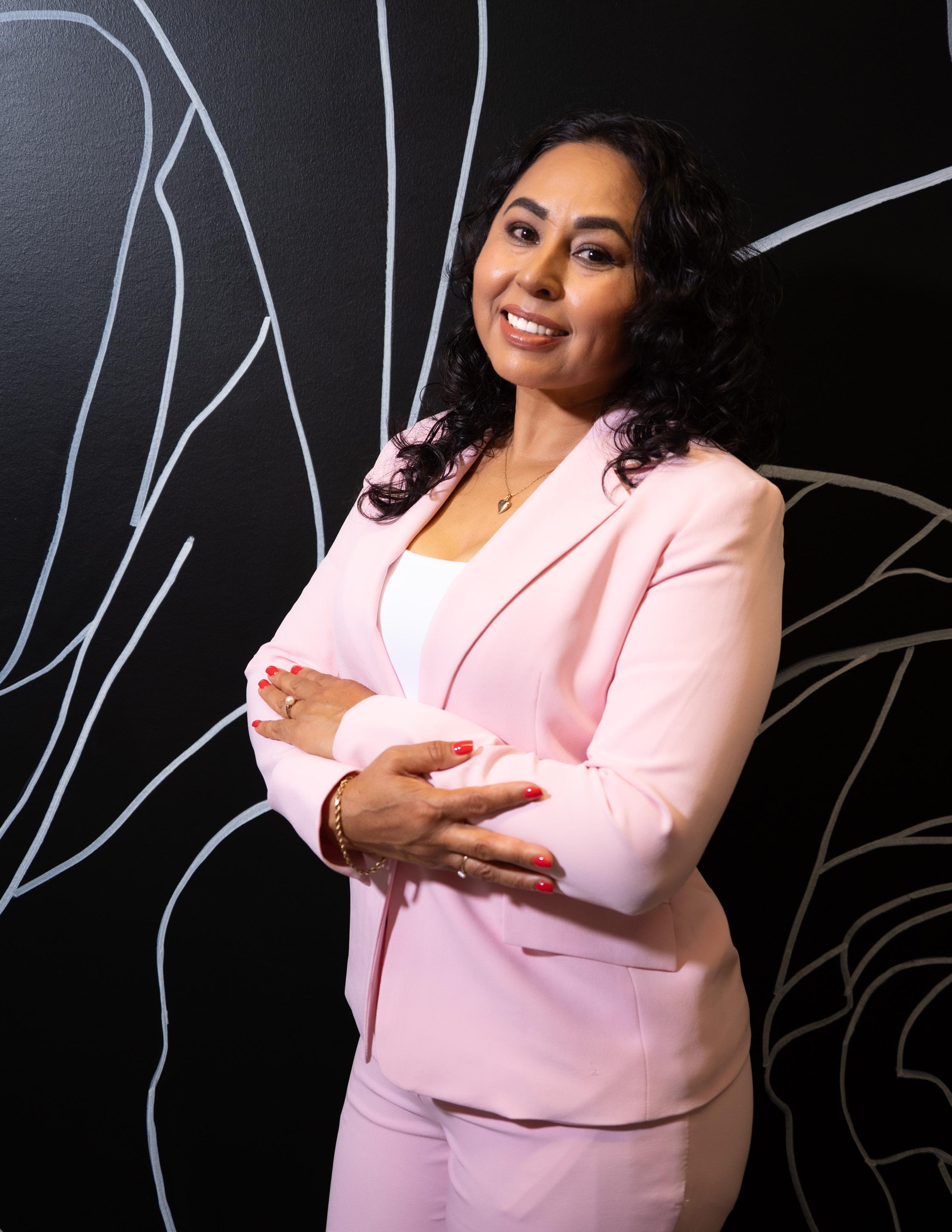
Ever
wonder if therapy is right for
you or your family but aren’t sure where to start? You’re not alone. JEFAS sat down with therapist Antonia Valadez to discuss common questions about therapy and her insight is invaluable.
What questions should I ask a therapist to assure they’re a good fit for my needs?
Valadez: Don’t be afraid to ask for what you need, as specifically as possible so you can find the best fit for you. Here’s what you might want to ask:
• What experience and training do you have regarding my specific concerns?
• Are you supportive of issues or identities important to me? (For example: abuse survivors, body positivity, inclusion of all abilities, neurodiversity, monogamy, polyamory, sex positivity, etc.)
• How might a typical session look? (Conversational, structured, flexible, directive, etc.)
• What therapeutic modalities do you use? (CBT, EMDR, ACT, Brainspotting, etc.)
• Do you offer religious-based counseling, and are you familiar with my cultural or spiritual background?
• What types of therapy do you provide? (Individual, family, couples, etc.)
What are unique mental health challenges within Iowa’s Latinx community?
Valadez: As a Latina provider, I don’t have to “learn” about cultural
nuances because I grew up in this culture. However, many Latine clients face challenges like:
• Shortage of bilingual/ bicultural mental health professionals: There are not enough therapists to serve our community.
• Lack of insurance: Not everyone qualifies for or can afford insurance. I try to offer reduced rates or pro-bono services when possible, but not all therapists can do that.
• Language barriers: Mental health terms aren’t always familiar. I explain concepts in everyday language.
• Unaware of local services available: My background in social services helps me connect clients with helpful, often free, community resources.
How do I know that therapy is working?
Valadez: Therapy is tailored to the needs of the client and depends on their concerns. These are some examples that clients report as a result of therapy:
• Identifying unhelpful, limiting beliefs and reframe them in a healthier way.
• Improved physical, emotional, energetic boundaries.
• Increased ability to assertively communicate thoughts, wants and needs and say “no” when necessary.
• Increased ability to identify emotions and somatic sensations.
• Managing intense emotions using coping skills like active listening, problem-solving, and non-violent communication techniques.
• Increased sense of purpose and self-awareness that help set and achieve personal goals.
• Increase in caring for oneself physically, emotionally, spiritually.
• Controling their thoughts, emotions and behaviors while understanding they cannot control others.
• Decreased codependency in relationships with increased feelings of connection and emotional and/or physical intimacy with others.
• Decreased feelings of stress, anxiety, fear, anger, or emotional reactivity.
Some people are turning to AI for therapy. What are your thoughts on that?
Valadez: AI can be good at providing information related to mental health, strategies, or analysis, but I don’t think it is capable of truly forming the

kind of connections humans create with each other.
We have mirror neurons in our brain that help us relate to one another that begins at birth. It is how we connect, understand, support, challenge, and heal. This is not something that AI can replicate.
It’s the same reason why reading a self-help book can’t replace therapy. It’s not an experience that provides an emotionally safe environment to move toward healing.
We need to feel seen, heard, understood. So, if we turn to AI for therapy we only get a portion of what we need, an imitation of a human interaction, but it won’t be as effective.
Can children go to therapy? How young is too young?
Valadez: There are child-specific therapy approaches like Play Therapy or Parent-Child Interaction Therapy and many modalities can be adjusted when working with children.
1. Discuss concerns about behaviors with their pediatrician to see if it is within the normal limits of their developmental stage and ask for referrals.
2. Ask therapists what age groups they work with and how.
3. If there are concerns related to behaviors that affect the safety or well-being of the child and/ or their caretakers, ask about intervention options.
Therapy isn’t one-size-fits-all, but asking the right questions to find the therapist that best fits your needs can help you get the support you deserve. Reach out, ask questions and remember that you’re not alone on this journey.
Valadez suggests asking your primary care doctor for a referral or go to www.psychologytoday.com to find therapists in your area.
By Christina Fernández-Morrow
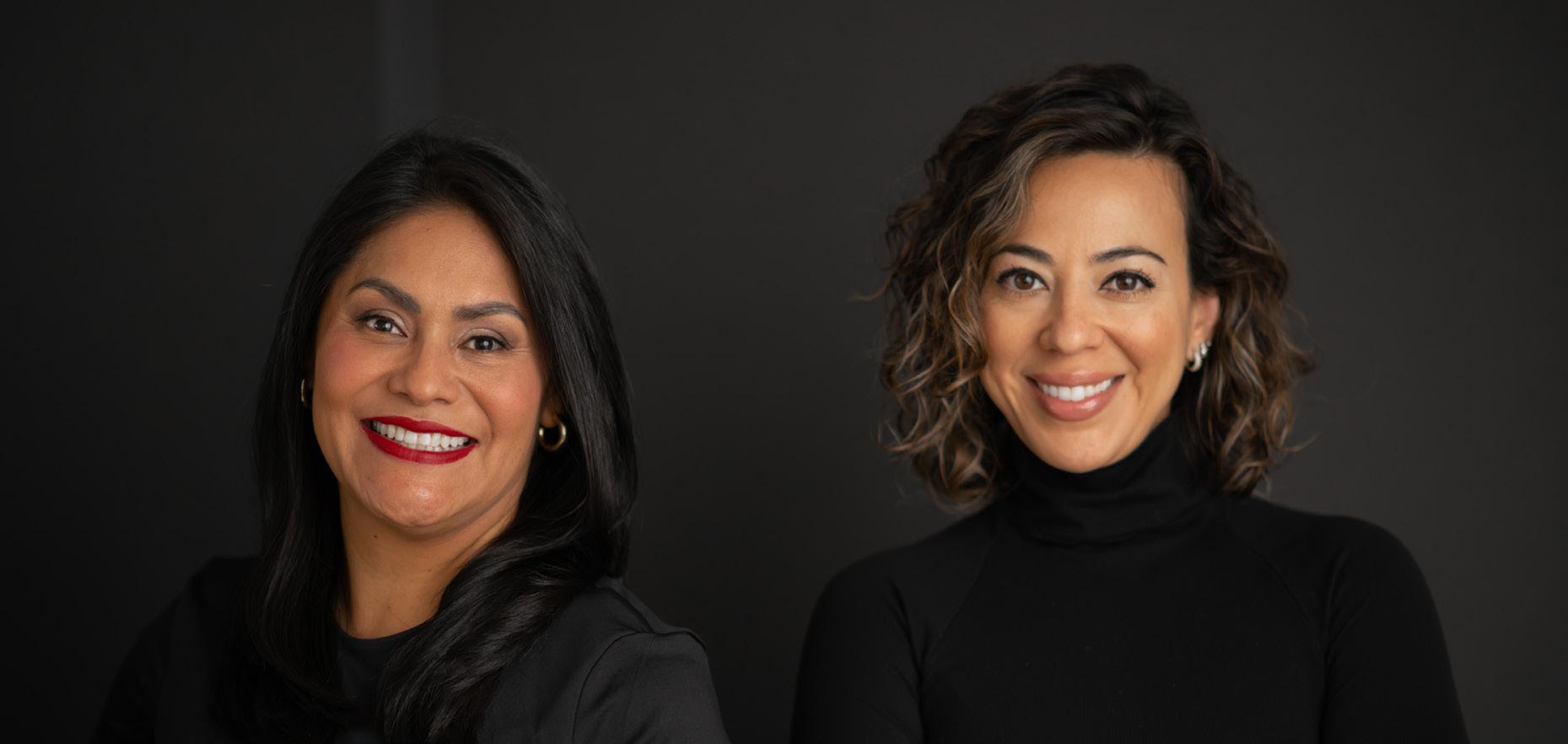
Three years ago, in the midst of the global pandemic, Elia Quintana and Jennifer Arce took a leap of faith and launched Cima Strategies in Washington, D.C. Utilizing their collective experience in the non-profit, corporate, and government sectors, Jennifer and Elia followed their instincts to share and apply it to prospective client needs. Cima Strategies was originally founded to help organizations advance workplace equity and strategic initiatives through stakeholder engagement, communications, and event production. However, in response to growing demand, the firm’s business has mainly been focused on event production for organizations seeking support to elevate their missions through in-person/virtual summits, conferences, galas, and stakeholder convenings.
Why we started Cima & advice for aspiring Jefas
We started Cima because we saw an opportunity—as a Latina-owned, woman-led consulting firm—to help organizations make meaningful progress toward equity and building something rooted in purpose.
If you’re thinking about starting
your own business because you're burned out, our advice is: prepare. Many people romanticize the idea of being a “Jefa,” picturing flexible hours, freedom, and financial independence. All those things are possible—but you have to put in the work and likely wear every hat at first. If you are driven with the right preparation, mindset, and support system, building your own business can be one of the most fulfilling things you’ll ever do!
As Latina business owners, we’ve learned that growth comes with discomfort. Some of our biggest lessons learned include: taking risks, learning from your failures, being humble, collaborating with others and never stop reinventing yourself. Be persistent—sometimes doors don’t open the first time. Know your value, don’t be afraid to negotiate or walk away, and always have FUN! Your professionalism, attitude and energy you carry will be noticed and can lead to your next business deal!
With staffing shortages, changing political landscapes, and limited funding, we are often the turnkey solution for many clients looking for experienced professionals who can




www.cimastrategiesdc.com

adapt easily, and understand their business and specific circumstances. Our clients are looking for reliable, creative event producers who can deliver excellence under pressure, connect with their missions, and adapt quickly to changing landscapes.
1. Aligning stakeholder expectations with realistic timelines and budgets
2. Ensuring seamless, accessible, and inclusive attendee experiences
3. Managing the unexpected— pivoting quickly and calmly when things don’t go as planned
From strategy to execution, we’re proud to be part of events that build momentum and tell inclusive stories. At Cima, we don’t just produce events—we create impact. The future is bright, and we’re just getting started.

When clients came to the Iowa Works office in Ottumwa looking for help translating important documents, many left empty-handed. That service was no longer available. Sandra Trejo-Wirfs couldn’t stand by and do nothing. She knew that for many immigrants, a translation could mean the difference between moving forward or staying stuck.
So, she created her own solution: Dreamer Translation Services LLC. Between her full-time job, community leadership roles and raising four children as a single mother, Trejo-Wirfs built a translation business that serves immigrants across southeastern Iowa and proves that sometimes the most powerful community change comes from someone who refuses to accept “no” as an answer.
Her solution didn’t come out of nowhere—it was rooted in firsthand knowledge. Trejo-Wirfs has worked at Iowa Works for more than 15 years, where she rose to the position of operations manager. She recalls that back when the office was known as New Iowan Service, they used to offer translation of birth certificates, notarization of documents and other essential services. However, after administrative changes, the agency shifted its focus solely to workforce development, leaving translation assistance behind.
“I saw there was a real need in the community,” says Trejo-Wirfs. “Due to a conflict of interest, I can’t offer my translation services within my job. Still, I always guide people and give them information about where they can find help.” When she's not
guiding walk-ins at Iowa Works, Trejo-Wirfs is working behind the scenes to meet deeper needs.
In addition to running her business, Trejo-Wirfs serves as the president of the local chapter of LULAC (League of United Latin American Citizens) in Ottumwa. Through this organization, she offers her services as a Spanish-English translator and notary.
“I understand people’s needs, so I try not to charge too much, but I do need to cover costs like paper and supplies,” she explains. Most of her clients come through word of mouth. Translating birth and marriage certificates, reading letters and sometimes accompanying people to medical appointments or court hearings are just a few of the services she provides—when her schedule allows.
She avoids immigration-related work, as it demands too much time and interferes with her work hours. Her motivation isn't just professional; it's personal.
Trejo-Wirfs is a busy woman, deeply committed to her community. Born in Jalisco, Mexico, she arrived in Ottumwa with her parents and two siblings after her parents gained legal status through the 1987 immigration reform. As the middle child, she learned perseverance and the value of hard work from her father. “He taught me how to move forward,” she recalls.
Widowed young with four small children, she leaned on her mother’s support and her own determination to push through. Her children
are now grown. Her oldest is 30 and has given her a granddaughter. Her 28-year-old son lives in Des Moines; the other, 22, studies at the University of Northern Iowa; and the youngest, 20, is in the military, awaiting deployment to Kuwait—a situation that weighs heavily on her.
“All I can do is pray he comes back alive,” she says, her voice trembling. Though her son is excited to serve, she constantly reminds him of his roots: “You have to represent, son. Even though you were born here, you carry Mexican blood.”
Trejo-Wirfs is remarried to a nonLatino who is incredibly supportive. “He respects and values the time I dedicate to helping others. He’s proud of me,” she says. She has involved him in immigration-related events so he can better understand the struggles of those seeking legal status.
Trejo-Wirfs also serves on several local boards, including the Community First Credit Union, the YMCA and the Human Rights Commission. She also volunteers with the Iowa Migrant Movement for Justice, an organization that provides legal support to immigrants. Her schedule is always full. After her day job, she heads to meetings or works on translations for her business.
Despite all her commitments, Trejo-Wirfs makes time for small pleasures that connect her with herself. Her biggest escape from the daily hustle is spending time with her beloved granddaughter. She also enjoys pampering herself with freshly done nails and lashes that,
as she says with a laugh, “boost my self-esteem.”
Language is the biggest barrier many immigrants face, and Trejo-Wirfs knows this firsthand because she experienced it. In the 1980s and ‘90s, speaking Spanish at school made her the target of bullying and discrimination. “You’re not dumb, but when you don’t know the language, they make you feel like you are,” she says.
Sandra Trejo-Wirfs juggles board meetings and translation appointments, family dinners and community events. Yet, she makes time to fight so that no one else has to feel how she once did. She firmly believes that not knowing English is not a disability. With every translated document, every guided trip to court, every immigrant who walks away with the help they need, Trejo-Wirfs proves that community commitment can also look like a mother, a wife, a worker and a woman proud of her roots.
By Karlha Velásquez


“Across the nation, Latino students, many of whom are multilingual learners, continue to be underserved by an education system that lacks adequate representation and culturally responsive support," states Noemi Mendez, a Des Moines Public School educator. To her, this is more than just a statistic, it's a call to action.
Between writing children's books, teaching online college courses, and pursuing a doctorate in Culturally Responsive Leadership, Mendez launched Making Connections, LLC in the Fall 2023 to tackle the shortage of educators of color equipped to support English-learning students. Rather than complaining on the sidelines, Mendez has dedicated her career, and now her business to increasing student achievement.
Mendez didn’t form her observations overnight. Across nearly three decades she has been a teacher associate, kindergarten and middle school English Language teacher, curriculum coordinator, administrator and an interim principal. This breadth of experience has given her unique insight into working with the students she considers most vulnerable and who often lack a voice in education.
“It’s not about having all the answers—it’s about building capacity, elevating voices, and creating systems where every student, especially those too often overlooked, can thrive,” she explains.
Unable to ignore this troubling pattern, Mendez gathered resources from previous roles and designed a research-based training curriculum
full of tools and strategies for educators at all levels to better serve multilingual students. The training focuses on language acquisition, culturally responsive pedagogy, and effective classroom management. “The goal is simple yet powerful,” shares Mendez, “To ensure every child, regardless of their background or language, has access to high-quality, inclusive, and empowering education.”

As a multilingual learner herself, Mendez understands the struggle personally. As the first in her family to pursue higher education, she persevered through doubts, fear and guilt over having opportunities those before her could only dream of having. “If you would have told me years ago that I’d be earning a doctorate in education, publishing books, and running my own business, I would’ve said, “I can’t wait!” Because deep down, I always believed there was more out there for me,” she reflects.
That drive comes from watching the
women in her family, especially her mom and sisters, give of themselves and serve their community. She recognized a responsibility to do as much as she could, leading her to take risks in her education, career and now in her business ventures as an author and business owner.
She poured this passion into supporting and mentoring other Latinas as the executive director of the Latina Leadership Initiative, a role she held just before the pandemic. Seeing a lot of herself reflected in the participants, she knew she could make a difference beyond the classroom while elevating her culture. “Being Latina means I don’t give up easily. It means I carry my community with me in everything I do,” she says proudly.
“We thrive, grow, and live fuller lives when we lift each other up.”
This sense of purpose is the fuel that keeps Mendez going. Although sometimes the days can feel long and the task daunting, she takes it in stride, knowing she is creating the changes students need to thrive.
“If I can educate, support, or inspire even one person at a time, then I’m doing what I was called to do. I truly believe that education has the power to transform lives and communities, and that’s what keeps me grounded and motivated,” she says.
With such dedication and heart for her work, it’s no wonder that her influence will be felt for years to come.
By Christina Fernández-Morrow
by Jennifer Marquez
Effortless elegance. Timeless beauty. That’s what Blanca Ponce Dominguez wants to give customers through B’s Everlasting Permanent Jewelry, a company born out of a love for seamless glam.
“I received my first permanent jewelry bracelet and necklace over three years ago, and I absolutely loved the feeling when I looked at my wrist throughout the day. I love how it makes me feel,” she says. “Can you imagine how it's going to make others feel?”
That feeling inspired Dominguez to order a welding kit, complete welding training, and go all in. She launched B’s Everlasting Permanent Jewelry in October 2022. With no loans or grants, she invested in herself with personal savings. Her goal: to bring the joy of stunning, maintenance-free jewelry to her customers.
Dominguez, who is Mexican American, was raised in Iowa and runs her business in Council Bluffs. She travels as far as Lincoln, Nebraska, for pop-up events with her husband, who is also her biggest supporter.
Dominguez fits each piece to her client and welds it closed for durable, everyday wear.
Because it is welded together, the jewelry doesn’t have a clasp. The seamless bracelets, anklets,
necklaces and bangles won’t slip off or get caught in your hair. All the pieces are made of gold, rose gold and sterling silver.
All glam aside, running a business takes grit, especially for a Latina-owned company in the Midwest. Dominguez explains that while jewelry is a source of comfort that has brought her much joy, creating a startup brings frustrations. Finding investors has been difficult.
“There are a lot of businesses that help with consulting, but they charge an incredible amount of money,” she shares. “It’s difficult to find wholesalers that are honest about their metal materials. It has gotten a lot better since I now have a handful of wholesalers I trust.”
Beyond business challenges, Dominguez navigates the dynamic of being mixed-race while serving a diverse clientele. She’s been told she’s not Hispanic enough to fully belong to her Latin roots, and not white enough to be accepted in the Caucasian community.
“My mom is half white and half Hispanic. Her mom was born here, but her grandparents were born in Michoacán, Mexico. My father is from Durango, so he was born and raised there.” Raised in a mixed household, she did not grow up speaking Spanish but has worked hard to learn the language as an adult. In addition to running a business, she’s passionate about using her Spanish
skills to serve those less fortunate.
She translates for the WIC (Women, Infants and Children) program.
“When I interpret for families, I apologize and tell them, ‘My Spanish isn't the greatest.’ They say, ‘That's okay, because my English isn't the greatest,’” she laughs. Despite that, they manage to get through the appointments, and the experience helps Dominguez feel personally fulfilled and more in touch with her culture.
Those exchanges are a reminder of the bigger picture of why she became an entrepreneur: making a difference in the lives of others.
Being a wife, full-time mom of three and launching a business requires resilience. Serving the community and leaning into it is paramount. “Our world's very ugly right now. We need a lot more people out there just to support others.”
From mental health to finances, she encourages other Latina business owners to seek help. “Don't ever let anybody bully you. We have to work extremely hard. We live in a white man's world, and they look at us differently because of the color of our skin.” For other Latinas navigating the entrepreneurial path, she encourages them to develop mental filters for negativity. “Block it out. Focus on your wants and your needs.”
Her family prioritizes physical and

financial health. They work out together in their garage at home and take walks. When it comes to her finances, Dominguez is just as disciplined. Saving money during slower months is key. “I put at least $20,000 into this business so far. You never know what's going to happen.” Building B’s Everlasting Permanent Jewelry has shown her that crafting fine jewelry is more than a job. It honors her family legacy of integrity and creativity while bringing joy to the women she serves. “A bracelet that's $75 can put a smile on a woman's face who is struggling. You don't know what they're going through,” she says. “If God put me on this earth for one single thing, it would be to take care of my kids and show them what a good person is supposed to be like.”
If you’ve driven across Des Moines, Hampton or Jefferson, Iowa, chances are you’ve seen Marissa Hernandez’s work bursting with color and culture. She’s brought more than 25 large-scale artworks to life, each one standing out for its focus on representation, ensuring that communities see themselves when they come across her murals.
Hernandez, artist and owner of Hernandesignco, has been creating murals since before earning her degree in painting from Drake University. Her earliest work, at the Conmigo Early Learning Center on Scott Ave in Des Moines, launched a career that would see Hernandez transform dozens of public and private spaces across Iowa.
“My goal was to do at least one mural within five years of graduating,” says Hernandez. Far surpassing that, she shows no signs of slowing down. Her art can also be seen on the side of the Evelyn K. Davis Center, the Boys and Girls Club of Central Iowa, inside the Greater Des Moines Botanical Garden and several elementary schools, to name a few. But creating art on a grand scale is only half the job.
Hernandez quickly discovered the challenges of being a professional artist. “When you talk about a career as an artist, you’re going to be self-employed. You have to collect receipts, have a business account and do taxes. They don’t teach you that part when you’re getting your degree,” she explains. Navigating the logistics of self-employment has been a learning curve. She learned some lessons from trial and error, while other tips she learned from fellow artists in the community. “I didn't expect there to be so many
artists in the Des Moines area, especially artists of color. It’s nice to have them to talk about all this business and art world stuff,” she says of the support she found. But beyond brightening Iowa’s artistic landscape, Hernandez’s art is deeply rooted in something even larger: the communities she serves.
People are at the core of her work. Her style centers on representation, using faceless portraits that allow the viewer to imagine themselves in the art. “I like the versatility of it because it can be different races, ethnicities and ages so multiple people can identify with the art,” she says of her signature style. She also infuses her heritage through vibrant shades of yellow, blue, pink and purple. Her Latinidad was the focal point of the mural she did for the Latino Cultural Center in Hampton, Iowa. “I love that I got to include my culture into the design. It was really special,” she says. It was also one of her largest projects.
While she loves that public murals like that one can be enjoyed by anyone, she recognizes that it can be taxing. “Sometimes it takes a toll on the body,” says Hernandez of standing for long hours, carrying heavy cans of paint, climbing up and down boom lifts, loading and unloading supplies, and cleaning as she works. In addition, she contends with the weather, recalling near freezing temperatures in November, and when the heat and humidity made the paint especially tricky during a project in late July.
To maintain her energy and creativity, Hernandez is intentional about rest and recovery. She regularly makes time for activities that reset her mind and body. She enjoys reading
different genres of books and playing with her cats, as well as spending time in nature - experiences that sometimes find their way into her work. As she learned to balance her wellness and artistic approach, she sharpened her understanding of some business fundamentals she initially overlooked.
She hadn’t considered the labor involved when she first began pricing her work. Her peers were key in this area of her development. “Artists of color are really transparent about their pricing because we want to make sure everyone's getting what they're worth and no one's underselling themselves,” she says. Over time, she created a pricing scale that incorporates the value of the work that goes into the ideation and implementation of her murals, while still being affordable.
No matter how many walls she transforms, Hernandez never loses sight of her mission: to create spaces where everyone can feel seen and celebrated. “Representation is my main thing. It’s important for murals or public artwork because it's going to live in these communities. You want it to be reflective of the people there.” So, the next time you encounter one of her pieces, take a moment to envision yourself within the beauty she created, allowing a moment of light and color into your day.
You can follow her growing portfolio on Instagram: @hernandesignco.
By Christina Fernández-Morrow


Atender las necesidades de su comunidad convirtió su vocación en un negocio
ARosario Márquez le apasiona ayudar a los demás. A veces, al acostarse, no logra dormir pensando en los problemas que podría resolver para otras personas. Ese impulso constante por servir la llevó, como residente de Des Moines, a convertirse en ministra ordenada, traductora médica y, más recientemente, corredora de seguros. Ha logrado transformar las necesidades de su comunidad en oportunidades profesionales.
Para Márquez, emprender no significa acumular riqueza, sino responder a la falta de servicios que afectan a las poblaciones más vulnerables. “La interpretación me permitió ver a la comunidad más vulnerable”, afirma. “Poder ayudarles fue una sensación maravillosa”. Ahora, 30 años después de haber llegado a Estados Unidos, ha transformado esa filosofía de ‘primero el servicio’ en una exitosa correduría de seguros que atiende a personas de distintos orígenes, desde adultos mayores latinos hasta inmigrantes birmanos.
Su costumbre de detectar necesidades y buscar soluciones comenzó hace años. Cuando fue al juzgado del condado de Polk para buscar a alguien que pudiera oficiar la boda de su amiga en su idioma y dentro de su cultura, no encontró a nadie, a pesar del crecimiento de la población hispanohablante en la zona. ¿Cómo resolvió el problema? Investigó por su cuenta y se convirtió en ministra ordenada.
Algo similar ocurrió en el ámbito de la salud. Cuando su esposo fue hospitalizado por una enfermedad, Márquez notó la escasez de
traductores médicos. A menudo, eran los niños y otros adultos quienes servían de intérpretes para algunos pacientes, y muchos ni siquiera contaban con alguien de confianza que pudiera ayudarles. Ella sabía lo que se sentía estar sola y desorientada en un lugar donde nadie habla tu idioma. Y nuevamente, decidió actuar.
Esta vez, el camino requería una preparación más extensa. Comenzó a estudiar por su cuenta técnicas de traducción profesional y se convirtió en traductora médica. Nunca lo vio como un empleo, sino como una forma de servicio comunitario en un momento de gran necesidad. Los pacientes requerían el apoyo, pero también los médicos, quienes muchas veces no lograban comprender las necesidades de sus pacientes sin un puente cultural. Traducir palabras no bastaba; hacía falta alguien que también explicara el contexto cultural.
Entonces llegó un desafío inesperado: la pandemia de COVID-19. De pronto, Márquez se quedó sin trabajo como intérprete. Pasar la pandemia encerrada en casa fue especialmente duro cuando los hospitales eran el epicentro de la crisis y la incertidumbre reinaba. En ese contexto, buscó una manera de seguir ayudando, sin dejar de sostener a su familia.
La oportunidad surgió cuando una amiga le sugirió que aplicara para convertirse en agente de seguros de Medicare. Márquez no sabía nada sobre Medicare, pero necesitaba mantenerse activa, así que se inscribió en la capacitación. Fue entonces cuando descubrió una

nueva forma de ayudar.
El trabajo en seguros resultó ser profundamente satisfactorio para Márquez. “Me di cuenta del reto que enfrentan muchas personas mayores —y especialmente los latinos— para entender qué hacer al llegar a la jubilación. Me encanta guiarlos en el proceso y ayudarles a tomar decisiones informadas”.
En marzo de 2025 se convirtió en corredora de seguros y fundó True Car Insurance. “Puedo ayudar a más personas”, explica.
El cambio a corredora amplió enormemente su alcance. A diferencia de un agente, un corredor tiene acceso a más productos. Además de Medicare, Márquez ahora puede ofrecer seguros de vida, dentales, planes de jubilación y rentas de por vida. También puede trabajar con diferentes compañías para armar paquetes personalizados según las necesidades de cada cliente. Gracias a eso, hoy apoya no solo a la comunidad latina, sino
también a la comunidad birmana. Muchos birmanos, como los latinos, siguen trabajando después de los 65 años y a menudo quedan fuera del radar de las aseguradoras. Márquez los contacta para hablarles de planificación financiera, asesorando incluso a personas que viven tan lejos como Nebraska e Illinois.
Cuando no está ayudando a los demás, está aprendiendo. Desde que llegó a Estados Unidos, adoptó una actitud autodidacta: aprendió inglés por su cuenta y sigue aplicando esa misma disposición en su vida profesional.
Como corredora independiente, ya no puede llevar la contabilidad sola, así que contrató a una contadora. Le gusta sentarse con ella y aprender de lo que hace. No se limita a su negocio: también está aprendiendo a cuidarse a sí misma.
Durante mucho tiempo hubo noches sin dormir, días sin comer, llamadas de clientes a toda hora y muy poco tiempo para ella. Ahora ha
empezado a poner límites. Apaga el celular del trabajo los fines de semana, sale a caminar y escucha música. Practica técnicas de relajación y se permite disfrutar los frutos de su esfuerzo.
Cada 4 de julio celebra su llegada a Estados Unidos hace 30 años y la vida que ha construido gracias a su vocación de servicio. Su consejo para otras mujeres emprendedoras es simple pero poderoso: “A veces el miedo nos paraliza. Tenemos que creer en algo, tomar una decisión y ser nosotras mismas” para poder avanzar. Para Márquez, aquellas noches en vela preocupándose por los demás se convirtieron en el cimiento de un negocio sostenible basado en el servicio. Su historia es un recordatorio de que, muchas veces, las mejores soluciones nacen del deseo genuino de ayudar.
Por Antonia Rivera Fotos por Tatiana Peña Ilustración por Marissa Hernandez

100 University Avenue, Des Moines, IA
Al lado de la oficina principal de correo
Abiertos de Lunes a Jueves
9 am a 5:30 pm
Viernes de 8 am a 5:30 pm
Horario del Drive-Up
L-V 7:30 am - 6 pm
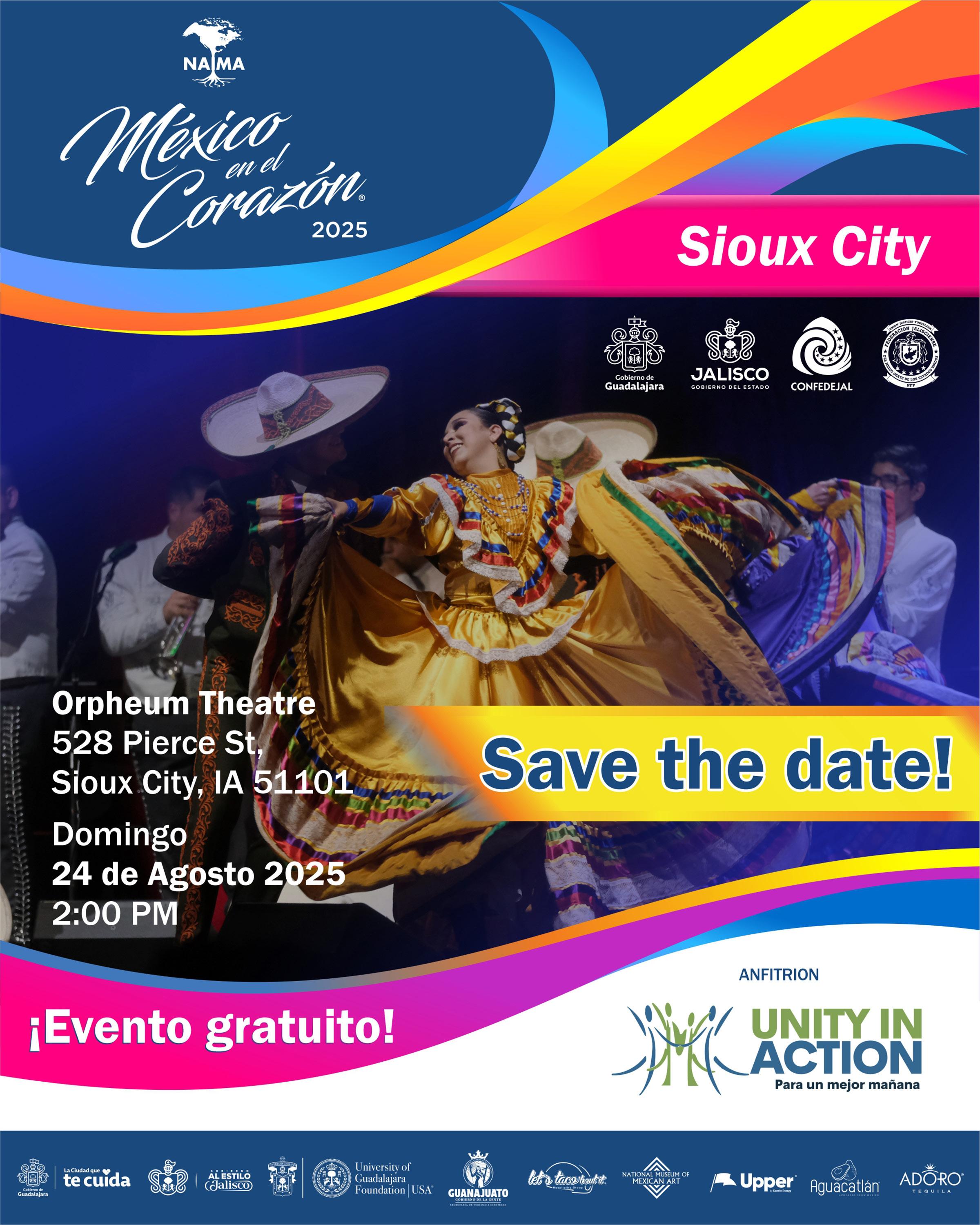
Dr. Lidia Gomez, chiropractor and owner of Mi Casa Wellness in Bettendorf, Iowa, shares her prescription for thriving in business and life.
“We're made of energy,” explains Dr. Lidia Gomez, owner of Mi Casa Wellness in Bettendorf, Iowa. That energy can either heal us or harm us. Too often, Latina entrepreneurs are running on empty.
Dr. Gomez sees it in her practice daily: successful women who have mastered the art of caring for everyone except themselves. “You have to take care of you, because we don't grow up with that in our culture,” she observes. “Our moms and grandmothers go on and on, giving of themselves, even when they’re sick, they’re there for their families.”
The pattern continues into entrepreneurship. “I hear women say they can prioritize their children, their partners, their business, their friends. But when it comes to themselves, it's always pouring, pouring, pouring, and not having anything poured back into them.”
She wants to see today’s Latinas rewrite this narrative. Her prescription? Four powerful practices that can transform your energy and impact the health of your mind, body and business.
Carve out Sacred Time for Self-Care
The Challenge: Finding time to prioritize yourself when you're juggling a business, family, and community responsibilities feels impossible. “It sounds easy, but it’s not,” acknowledges Dr. Gomez.
The Solution: Start small. Even ten to fifteen minutes a day of intentional self-care can shift your entire energy and make a world of difference.
This could mean sitting quietly with your eyes closed, listening to music that helps you focus on the present moment rather than your endless to-do list. If you can manage longer sessions a few times a week— whether it's watching a movie or reading a book—your mind will clear and your body will have space to restore itself.
“When we have a business we think it’s good to always be busy, but it’s not,” warns Dr. Gomez. “You’re not going to get anywhere if you’re tired, sick or overwhelmed. Eventually, your body will break down.”
The Practice: Dance to your favorite song. Walk around the
block. March in place while taking calls. Lift your legs during TV time. Stretch between emails – whatever you can do to get the blood flowing is good! Some people can only move with support, like a chair and that’s OK, too. The important thing is to do it. All of it counts and can make a difference in your mental and physical health.
The Community Factor: Dr. Gomez emphasizes the power of moving with others. “We feed off other people’s energy. When we come together to do something good for ourselves, our mind and body is fortified.”
The Permission: Sometimes you just need to let it out, however you can. “Go outside or into your car and scream. Release that energy and make space for a healthier energy to revive you,” advises Dr. Gomez.
The Release: Crying is equally powerful. “If you have to cry, do it. Crying is healthy. It releases emotions that you do not need anymore.” Physical release gives your mind permission to heal and start fresh.
The Result: When you actively release built-up tension and emotion,
you create space for renewed energy and clarity.
The Power: “Women’s energy is amazing!” exclaims Dr. Gomez. “If you've ever been in a place like a birth where there's a lot of women you can feel it.”
The Need: Business ownership can be isolating, making feminine support even more crucial. “As women we need to support each other because being a business owner is hard without being there for each other,” says Dr. Gomez. “It doesn't matter whether we're moms, stay-home moms, or business women. We all work incredibly hard and need encouragement and support more than ever in these times.”
Your business needs you to be strong mentally, physically, and energetically. As Dr. Gomez reminds us, you can't pour from an empty cup. These four practices aren't luxuries; they're essential business tools that will help you show up powerfully for your company, your family, and your community.
By Christina Fernández-Morrow
by Wezz De La Rosa

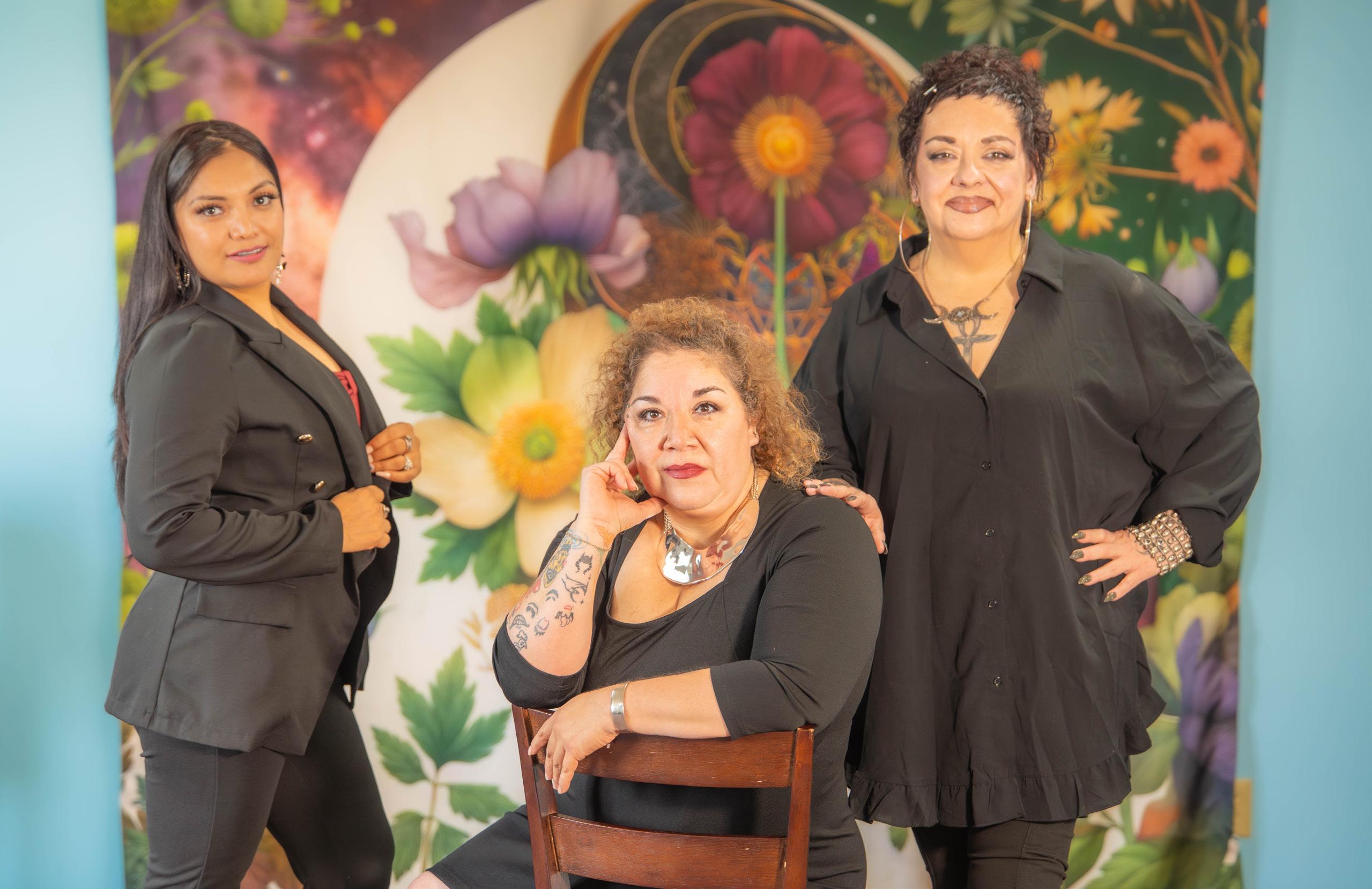

Moves are stressful, yet full of exciting possibilities. Veronica Peralta knows this firsthand: she’s moved several times in search of creating a better life. She moved from Mexico to California in the 1990s, her home for more than 20 years. When her children grew up, she chose Des Moines, Iowa, to build her empty nest and be closer to her family that had relocated to the city. It was a leap of faith, but it was time for her and her husband to begin a new life, with a focus on their own dreams and well-being.
Today, Peralta owns two successful restaurants in the Des Moines area —an unexpected path that has taught her as much about stepping outside cultural expectations as it has about business. Now, as she manages the demands of entrepreneurship while battling fibromyalgia, she's learning her most important lesson yet: putting her health first.
Her move to becoming a jefa —opening a Mediterranean restaurant like the one her husband had just retired from—was unplanned. “Our dream was to open a Mexican restaurant and share our culture with Des Moines,” shares Peralta. Fate had other plans.
Peralta’s husband’s former boss saw their potential and became their mentor. With Peralta’s service industry experience and her husband's background as a cook specializing in Mediterranean cuisine, he believed they could run a similar restaurant on their own.
The mentorship proved invaluable. They learned the business guided through every step of opening a restaurant like the one in California. In 2023, Peralta and her husband opened The Green Olive in Des Moines.
Support for the concept was so great that in 2024, they opened a second location in West Des Moines. Now, as the face of The Green Olive, Peralta understands why her husband’s former boss had so much faith in them.
“Being a business owner is something I never dreamed of. It just happened. I run the front of the restaurant. He runs the back. We make a good team.” But the road to success hasn’t been easy.
It is awkward sometimes, a Mexican
couple running a restaurant that does not serve Mexican food. Some customers walk out when they see them serve Mediterranean dishes. It is hard for some customers to believe that a Mexican couple can run a restaurant that does not stem from their own culture. But when they walk out, Peralta runs after them, inviting them back, asking them to give The Green Olive a chance.
“Although it is not our culture, we believe that what we are sharing with this cuisine is more than just good food,” states Peralta. “We love what we do and the community that has surrounded us. We don’t think it’s strange that as Latinos we stepped outside of our comfort zone and began a journey with a different kind of restaurant.”
For Peralta, success means more than overcoming cultural expectations. To her, a healthy experience extends beyond the fresh lemon, garlic and olive oil dressing the couple makes daily. Anyone who walks into either location can expect that there will be a friendly smile served alongside a fresh, healthy meal in a comfortable setting, even the skeptical Latinos who wander in expecting a different cuisine. “Sharing something new with our people has been a joy. As a Latina, I know how skeptical our people can be about trying new things, but when I talk to them in their language, that has been what has made many of our Latino customers try the food and come back as regulars.” It is her intention to treat every customer like a very important guest in her own home.
As the chaos of starting and expanding a successful business fades and stability sets in, Peralta thinks about what’s next. With the same determination she had when she moved to Iowa with a dream, she decided that this Jefa is getting
long-needed attention. “My plan is to prioritize myself. I have fibromyalgia. If I do not put myself as number one, then I am not going to last,” she explains.
Fibromyalgia causes her muscles to flare up with pain. The long hours required to keep a business running put extra strain on her body. Depression and fatigue are common symptoms of the condition. Staying active helps manage the pain, which is why Peralta is making her physical and mental health a priority.
Peralta has started to incorporate yoga into her daily routine. “It is easier on my body, and I can meditate and disconnect from my work for a moment.” When yoga is not an option, she reads for five to ten minutes during breaks to clear her mind while at work. She meditates and prays. She is working on her nutrition, eating three meals a day and healthy snacks in between. She plans to spend time with her grandchildren, who bring her joy and help her feel young.
Being a Jefa is demanding, but Peralta is working hard to move toward a future full of fruitful possibilities. “I have a lot of responsibility on my shoulders. That makes me push forward, not stay home and not give up,” she says. “I also have quality time with myself. That is how I can keep going.” The next chapter isn't about moving again or expanding her business. She can finally slow down and enjoy the life she worked hard to build by taking care of the person who built it.
By Antonia Rivera

Jovenes Embajadores almost didn’t happen. What started as a one-time performance grew into a celebrated Mexican folkloric dance group that has entertained Iowans since 2001. The journey began when a Spanish-speaking teacher approached Hilda Ramos just weeks after her move from Jalisco, Mexico to Osceola, Iowa, with an unexpected request: “Do you know any traditional Mexican dances?” As Ramos taught Jarabe Tapatío to a group of mostly non-Latino children, the experience rekindled memories of her own days as a folkloric dancer and became the spark that inspired her to bring her passion to the Heartland.
With a well-established group performing and growing in Osceola, Ramos resolved to keep teaching when her family moved to Des Moines in 2006. She connected with another group, Los Niños de Tepeyac and collaborated with their founder, Beatriz Gallo-Ray. Shortly after, their visions differed and Ramos set off on her own, driven by a deep personal goal: to ensure that her four young children could learn the dances she loved and share their culture with others. “When we decided to live in this country, I didn’t want my children to forget where they came from. I wanted my family to hold on to their culture, their origins.” This led her to expand her teaching to include dances from other states in Mexico. Today, the group performs dances from Chiapas, Veracruz, Colima, Michoacan, Nayarit, Sinaloa, Zacatecas and three distinct styles from Oaxaca.
As the group’s repertoire grew, so did the challenges. “The hardest thing is funding to make sure we have the costumes we need and they are in good condition,” Ramos explains. Purchasing and maintaining over 100 skirts, shirts, hats, sashes and headpieces requires constant attention and significant investment. Ramos imports all the garments from Mexico to ensure authenticity, but it also incurs a hefty cost. She tries not to pass that on to her students and their families.
To help with costs, Ramos taps into her own resources, often using income generated from the cleaning business she started when she moved to Des Moines. While not a nonprofit or a business, Ramos relies on donations and parental support for not only garments, but other needs, like renting vans to transport their gear to performances across the state. “The parents are invaluable. They help repair, launder and transport a lot of the outfits,” she says, highlighting the collective effort that keeps the group going.
Despite the stress, Ramos finds deep fulfillment in choreographing. When she watches audience members' faces light up at familiar melodies and movements from their homeland, every challenge feels worthwhile. “It’s something that fulfills me. I love doing it and it makes me smile,” she says, excitement in her voice. “It’s stressful, but at the end of the day, it brings me joy.” What energizes her the most is watching relationships develop among the dancers, who start dancing as early as four years old. Often recruited after seeing
performances, these children not only learn intricate steps but become teachers themselves, mentoring new dancers. That camaraderie motivates Ramos, reminding her that she’s doing a lot more than just teaching dance moves, she’s creating ambassadors who take pride in showcasing Mexican heritage.
“Sometimes I think, I have to let this go. My body doesn’t move like it used to, but I think I’ll do this until I can no longer move,” she says with a laugh. Her dedication is stronger than her doubts. With performances spanning Central Iowa, Webster City, Lennox, Waterloo, just to name a few, and regular appearances at events like the annual Iowa Latino Heritage Festival, Ramos shows no signs of slowing down. Through Jovenes Embajadores, she's preserving Mexican folklore, weaving it into the fabric of Iowa communities. It’s more than a passion project, it is part of Latino history that bridges culture and language through song, dance and rich traditions.
By Christina Fernández-Morrow
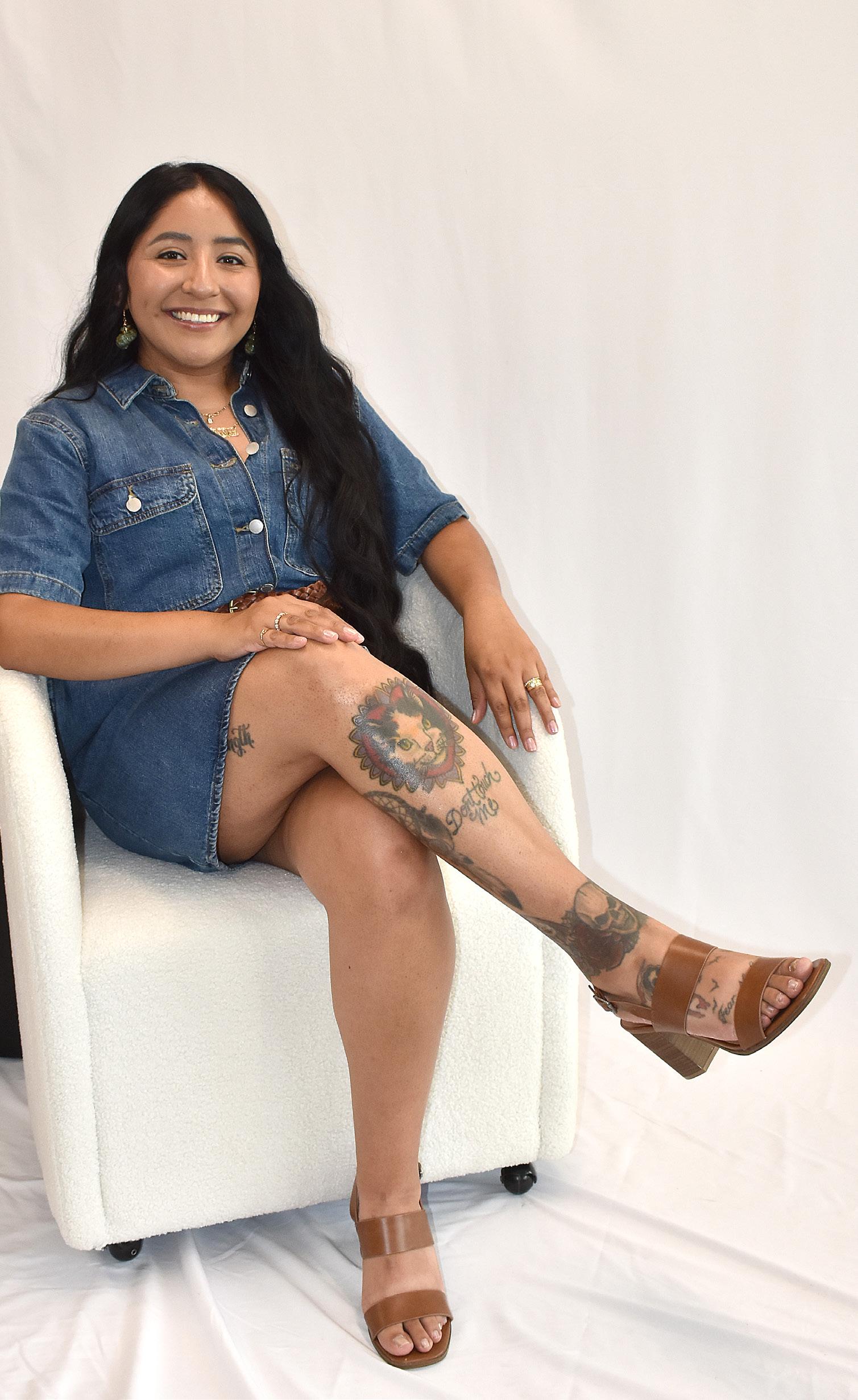
When Jessica Cue felt isolated and struggled to find community in Des Moines, she turned to an unexpected source of comfort: macrame. What started as a random YouTube tutorial and a spontaneous trip to Hobby Lobby in 2020 blossomed into macrame by Jess, a thriving business that's helped the Mexico native weave herself into Iowa's creative and entrepreneurial fabric.
For Cue, building her macrame business became a pathway to belonging. "I wanted to be part of a community and find friendships with like-minded, creative people," she explains. "At the time, I was in a stage of life where it felt hard to meet new people, so I turned to macrame as a creative outlet."
Cue creates handmade macrame pieces and other gift items, ranging from wall hangings and plant hangers to car accessories and smaller items, including bookmarks, keychains and earrings. Each piece is crafted to bring joy and warmth to people’s spaces. Cue also teaches macrame workshops, showing others how to make their own plant hangers. All of her products are made from 100% recycled cotton cord, adhering to her sustainable approach.
Her journey to this point wasn’t always smooth. “It’s given me a unique perspective, a deep sense of resilience and a strong connection to culture and community,” she reflects. “There have definitely been moments where I’ve felt like I didn’t quite belong, especially as a
woman of color in certain spaces. But over time, I’ve learned to own who I am and what I bring to the table. I’m incredibly grateful for the people who have embraced me, supported me and reminded me that my culture is something to celebrate, not hide.”
Her path to starting a business began with an unexpected catalyst. Being a full-time chiropractic assistant for a small business opened her eyes to entrepreneurship. The chiropractic job offered three-day workweeks, so her weekends were free. She laughed, recalling how her husband had encouraged her to find a hobby. That’s when she watched a macrame plant hanger tutorial on YouTube, went to Hobby Lobby and purchased the necessary materials. “I followed a YouTube video and was like, ‘Oh my God.’ I just nailed it.”
That first success sparked curiosity and deeper exploration. She researched other macrame creators and discovered that the woven material and the process of weaving became a source of comfort, with endless designs and possibilities.
Building confidence as an entrepreneur wasn't instantaneous. Like many Latina entrepreneurs starting out, overcoming impostor syndrome can be hard on mental health. “I think sometimes it comes from the color of our skin; going to vendor events and I don't see anybody else there like me.”
Fortunately, she had a strong support system. Her husband quickly squashed that self-doubt. “I would talk to him and express how I felt,
and he would support me.” She leaned into self-talk, reflecting on everything she’d accomplished. “It can be scary, but what's the worst thing that's going to happen?”
Social media presented another hurdle. Cue realized she had to stop comparing herself to other macrame designers online. “It's going to eat me up,” she says. “I'm unsure how to create a post or caption. How do I gain followers? How do I connect with businesses? Will people think I’m cringe?”
To better navigate her anxiety, she and her husband developed rituals like staying physically active, which makes a big difference in her mental wellness. When she’s having a bad day, her husband reminds her to get out of her head and into nature, to take a rest day and enjoy a walk. She bikes and runs, and recently completed her first 5K while training for a half marathon.
Through it all, she returns to her core values. “I come back to myself and say, ‘I know what I'm doing.’ I have a good heart; I'm a good human being. I'm just trying to go for it.”
When doubt creeps in, Cue reminds herself of the driving force behind starting her business: her desire to offer creativity to the community.
When she first began teaching others how to make their own macrame, Cue went all in. More than 20 people came to her first workshop. Her experience speaking at chiropractic conferences helped her guide her class. “Telling somebody how to move their fingers
and what to do … I thought, ‘Okay, I think I can do this.’”
Now, four years in, she says starting a business has made Iowa feel more like home. “I realized I didn’t have to know it all at once. I just had to be willing to learn. Iowa has such a growing creative energy. There’s a strong sense of community here, and people truly value handmade, local goods.”
Maintaining stability has been key to her success, and Cue feels blessed to work full time in a chiropractic office while building her business. “It's a good work-life balance,” she says.
Now that she feels more comfortable as an entrepreneur, she has sound advice for Latinas who are undecided about taking the entrepreneurial leap. Cue says to go for it. “We all start somewhere, and there’s room for all of us to succeed. If you have a question, you shouldn't be afraid to just ask. Find other people who are like-minded and you'll form new friendships.”
Most importantly, Cue encourages others to see being Latina as a gift. “Being Hispanic empowers me, especially when I don't feel like I belong,” she says. “I do belong; being brown and proud and moving forward.” For this creative CEO, bringing pride to family and serving the community is woven into every knot she creates.
By Samantha Mesa
Alejandra Valdez, founder of Viva Fit Kitchen, believes the foundation of lasting wellness lies in shifting from restriction to preparation. Rather than focusing on what you can't have or can’t do, invest your energy in setting yourself up for success with food and movement. This means having nutritious meals and snacks ready, keeping water within arm's reach and making choices that support your goals.
Valdez offers this advice to have a healthy mind, body and wallet.
Lifestyle Starts With Mindset: Wellness Begins in the Mind
• Discipline vs. deprivation: Healthy choices = empowering acts of self-care, not punishment.
• Community motivation: Healthy networks and shared goals = consistency and combats isolation.
• Preparation as self-respect: Meal prep = proof you value your future self.
Budgeting for Health: Healthy living Is Economically Savvy
• Home Cooking > Takeout: Prepping meals saves money and builds portion control.
• Bulk Buying Latino Staples = Savings: Beans, rice and veggies are budget-friendly power foods.
1Eat
Balanced and Whole Foods –With a Plan!
• Start with one prepared meal a day
◦ Skip breakfast? Prep yogurt parfaits or overnight oats to grab on the go.
◦ Drive-through lunch? Cook
lentils or beans for salad toppers or wraps.
◦ Does dinner make you too tired to move? Think light: salads, soups, small plates filled with vegetables and proteins that fill you up but don’t put you in a food coma.
• Swap one processed item for a whole food each week.
Fear Carbs: Balance Is Important – for Your Health and Taste Buds!
• Ditch seasoning packets with Red 40 — opt for tomato, onion and garlic instead.
• Love rice? Try Jasmine!
• Enjoy tortillas? One or two a day is fine in a balanced meal.
• Bread is not the enemy — pair with chunky salsa loaded with veggies and herbs, homemade guacamole or protein.
Matters!
Movement should be intentional, joyful and varied.
• Walking, dancing or playful activities that bring joy all count!
• Weights are great but also get your steps in to create a sustainable fitness routine.
• Join a free or low-cost fitness group in your community.
• Create a walking group — online or in person — to help keep you accountable.
• Track steps with a free app.
• Take the stairs, park at the farthest end of the lot, invite a friend, neighbor or co-worker to walk and talk instead of happy hour.
Sleep is your secret weapon; it can make or break your journey.
• Use an app or journal to track your sleep.
• Try sleep hygiene, like no screens at least half an hour before bed, a regular bedtime and a wind-down routine that lets your body know rest is coming.
Remember: Recovery makes everything else possible!
Water is your body's best ally.
• Carry a water bottle EVERYWHERE!
• Hydration boosts mood, energy and clarity.
Wellness doesn’t begin in your fridge or your gym. It starts in your mind and builds with every small choice you make. So prep with purpose, move with joy and hydrate like your life depends on it — because it does!
By Christina Fernández-Morrow
• Without adequate rest, your body fights against your wellness efforts.



Antonia Valadez spent years attuned to those around her; first as a survival strategy in an abusive marriage, now as one of the few bilingual and bicultural therapists in the Des Moines metro area. Valadez draws from lessons gained through her personal trauma to provide culturally informed care, demonstrating that sometimes our deepest wounds lead to our greatest victories.
From an early age, Valadez was reading the room. With no siblings and surrounded by adults most of the time, she learned to pay attention. “It was really important as an only child to know the mood of the people that were around me to know how to navigate that situation,” she recalls of her childhood. “If you know how people work, you know how to approach, when to approach, and in what way to approach.” It’s no wonder she pursued an undergraduate degree in psychology. “It was about understanding people. I'm a very curious person,” she says of her early days doing social work.
While the work was fulfilling, Valadez quickly realized that it would not afford her the income or time she needed to raise her family. She also knew she needed more than a bachelor's degree if she wanted to escape a dangerous marriage. This realization propelled her back to
school, determined to build a safer future for herself and her sons.
She chose a master’s in mental health therapy because she also recognized the need for bilingual therapists is severe in Des Moines, where Latinos are nearly 16% of the population but face significant barriers to mental health care. Language barriers, cultural stigma, and a shortage of Spanish-speaking providers compound the problem.
It took years to complete her degree as she prepared to build a new life for herself and her sons, while working a variety of jobs. “It's really hard to leave and if one has not been in such a situation. It's easy to say, well just leave,” she shares. “But there are so many factors to consider.” She describes the financial, emotional, and logistical challenges involved. Where will I go? Can I bring my teenage son to a woman’s shelter? Will I be safer in an alternate living arrangement? Are there services to help me rebuild if I leave everything behind? What will happen to my elder parent I care for if I leave?
Those types of questions weighed on Valadez as she prepared to escape her marriage. It took years to gather the courage, strength and resources to file for divorce and start over again. There were sacrifices and countless nights of
sleeplessness wondering if she and her boys would be OK. She learned that no one can operate on someone else’s timeline, no matter how dire the circumstances. Valadez intimately understands the importance of timing when seeking help. “It can’t be an obligation,” she says.
These hard-won lessons now inform her approach to therapy in her practice, Antonia Valadez, LLC in Urbandale, Iowa. It’s not about her telling anyone how to live their life. “I ask, ‘how can we do this together, collaboratively?’”
With Latino clients, she often highlights capabilities. “I emphasize the positives because our culture focuses a lot on our deficits,” she says. “Everybody has dreams, and I help people realize their strengths to create relationships where they feel comfortable and understood versus judged."
Her practice centers on trauma, times when a person is harmed by actions, words, behaviors and manipulation – not necessarily a tragic incident or violence. What she sees repeatedly is the impact of intergenerational trauma. “It's a double-edged sword when your parents didn't have the skills to give you because they were in trauma and mental health was not a thing.” She describes how cycles of pain manifest. “People with no
coping skills hit, yell, scream, create drama because it’s the only way they know how to meet their needs.” But she sees hope where others may only see despair. “I firmly believe that if those people had the capacity to do something different, they would.” That’s where her services come in. She uses a variety of modalities to teach skills and techniques to handle stress and triggers in healthy ways.
Trained in EMDR and Brainspotting, she combines these mind-body trauma treatments with the more commonly known, Cognitive Behavioral Therapy that uses more talking. “I have the tools to
serve a wide variety of clients, including BIPOC, LGBTQ. My most important goal is to provide culturally and trauma-informed mental health care that takes into consideration the full well-being of my clients.”
With her therapy dog Petunia often playing at her feet while she balances paperwork, billing insurance and marketing her business, the scene is a quiet contrast to the chaos she once endured. Valadez embodies the journey from survivor to healer. She showed her sons that even in their darkest hours they could choose healthier outcomes. Now she does the same for her clients,
arming them with the tools to turn their struggles into strength.
By Christina Fernández-Morrow
94% of Latina entrepreneurs cite mental health and wellbeing as top priorities; 60% say it affected business operations.

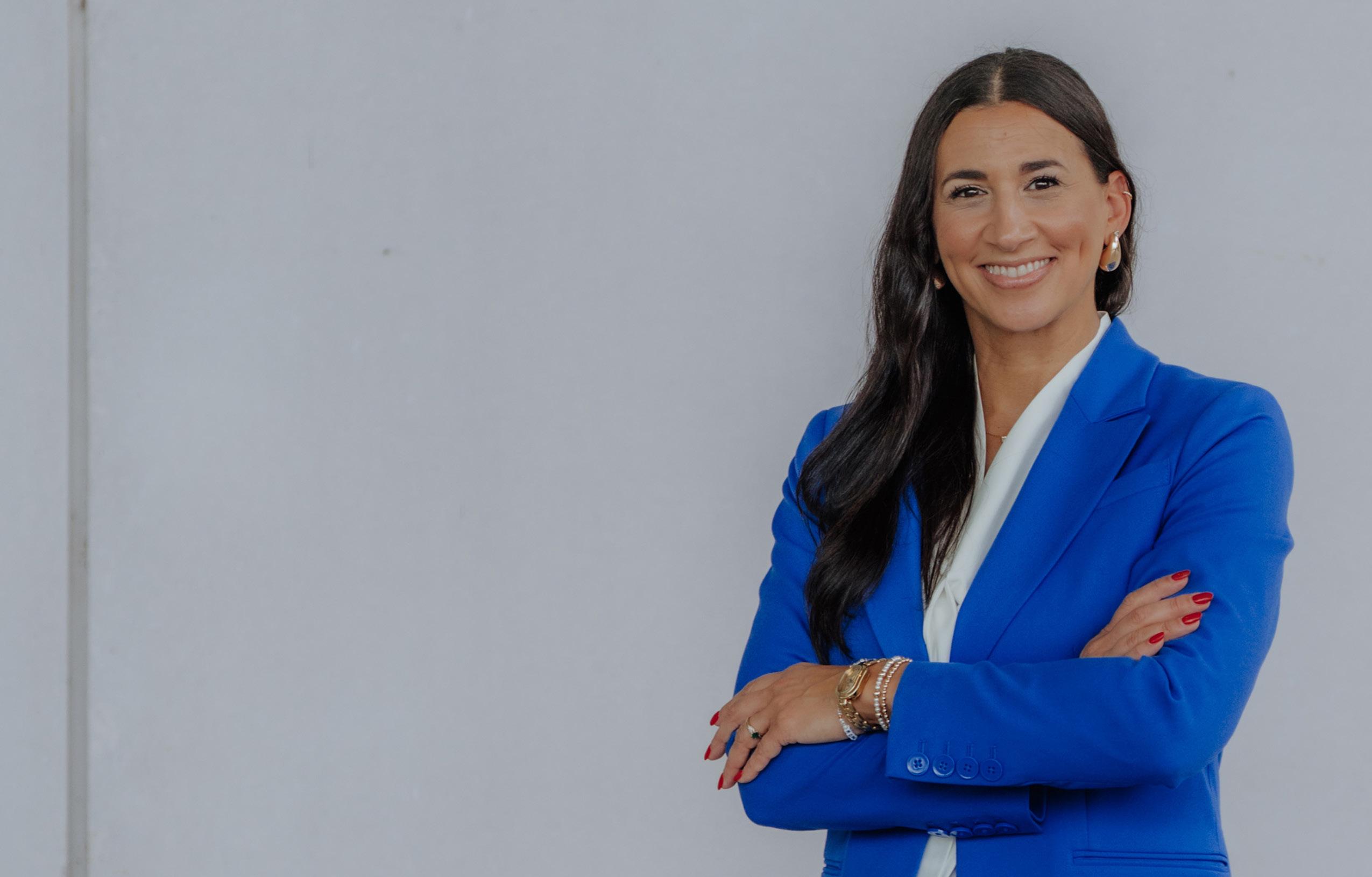
-MARCIA TREICHEL VP, Community Manager at JPMorganChase



When Mariana Hernandez arrived in the United States from Mexico City at age 3, she never imagined she would one day break barriers in Iowa's real estate industry. Now a DACA recipient and successful entrepreneur, Hernandez has co-founded Team Ellla, Iowa's first Latina-owned real estate company, transforming how families navigate homeownership while building generational wealth for her community.
"I wanted to break generational chains to build and create something bigger for myself and the generations after me," Hernandez says.
Through Team Ellla, co-run with Rocio Hermosillo and Maria Rocha, the three women founders — symbolized by the three Ls in the company name — are achieving that vision by helping families buy, sell and invest in homes across Iowa with bilingual services in English and Spanish. Hernandez also mentors other real estate professionals, proving that heart-centered business practices can drive both profit and purpose.
Her roots fuel this mission. "My culture has given me resilience, warmth and a deep sense of community,” Hernandez explains. “Being bilingual and bicultural allows me to connect authentically with a wider range of clients and uplift my people in the process." Through Team Ellla, "we can break the glass ceiling little by little and impact as many people as I can."
When she started in real estate, she worked nonstop. "I didn't have kids, so I was on the go, go, go, go, go, go, go," she recalls. "I could accelerate at 1,000 miles per hour and not even think about myself. After you have kids and a business, you get to a point where you're like, 'Wow, I'm burnt out.'"
This feeling was compounded by cultural expectations. Hernandez grew up with a strong work ethic where therapy, recognizing burnout and mental health were taboo. As an adult, she realized she had to understand balance and recognize triggers, especially regarding the company's finances. Through shadow work and meditation, she has been on a journey to recognize burnout and create boundaries by building her team to manage multiple roles.
Perhaps the biggest shift came when she learned to ask for help since that was not natural for her. But it be -
came one of the most pivotal changes in Team Ellla's success. Instead of taking on too many responsibilities that could lead to burnout again, she now hires accountants to handle profit-and-loss analysis and works with a business coach and consultant. By investing in their expertise, "it alleviates that pressure off of us." Her advice to other Latina entrepreneurs reflects this hard-won wisdom.
She encourages other Latina entrepreneurs to hire professional support immediately, especially for managing accounting. "We grew to 15 members within a year. We hit the ground running. It was too much."
Scaling a company so quickly challenged her to make time for her physical health, even in small efforts. "This is ongoing for me,” she shares. After having children, she started small, sometimes with a 15-minute walk or a quick workout. She's also focused on her financial well-being.
She learned to let go of hoarding money out of fear. "Learning my relationship with money is ongoing work,” she says. “I'm able to identify a trigger and say, 'When things feel heavy, how do I react to that?’"
These lessons transformed how she leads. Now she pours into her agents and her team, which allows her the freedom to invest in herself. Team Ellla has morning huddles, beginning the day in gratitude, and identifying key business activities to keep them focused.
What keeps her grounded through it all? Hernandez cites "the freedom to lead with heart, set my vision, and make an impact in my community while building generational wealth” as her core motivation to grow professionally and as a person. She wants more women to do the same.
For other Latinas considering entrepreneurship, her message is clear: While taking financial risks can be nerve-wracking, she encourages Latinas to start and stay grounded in their "why." "You don't have to know everything; you just have to be willing to grow." Building relationships has also been beneficial to her mental, physical and financial health.
"You're not alone,” she advises. “Choose the people to surround you who may also be going through the same thing, to learn from each other. I think that's a beautiful thing about collaborating and being an entrepreneur." Hernandez networks outside the Latina community to expand her professional contacts and make diverse spaces feel safer and more inclusive.
This approach requires vulnerability, especially in a women-led business where there’s pressure to wear many hats. "Being open with your employees or the people within your company is essential,” she explains. “This allows them to feel comfortable coming to you when things are not going as expected." But she admits it doesn't always work out as expected and that’s when her grounding practices become most helpful.
When things get tough, she leans into grace and gratitude. "I know that where I'm at right now in my life is where I'm meant to be. When I was working a nine-to-five corporate job, this was the life I prayed for,” reflects Hernandez. Her advice to other jefas is powerful and heartfelt: "We don't have to fit into anyone else's mold. We get to build our path and make it beautiful."
By Samantha Mesa
Gentle rhythms stream from speakers while people of all ages, heights and backgrounds sway, eyes closed, arms rising and falling. The beat pulses through them, creating a vibe of celebration and calm. Some participants hum softly; others are silent. There are smiles and faces deep in concentration and all of it is welcome in this sanctuary of movement and community.
They’re not partying, they’re healing through movement and connection. This is Biodanza, created by Rolando Toro, a psychology professor and researcher in Chile. Sol Varisco and her partner Deyanira Contreras lead sessions every Monday at Mainframe Studios in downtown Des Moines, introducing Central Iowans to what Toro called the “Dance of Life.”
"The toughest part about Biodanza is explaining what it is exactly," Varisco says with a chuckle. "You have to experience it to really understand."
Despite this challenge, Varisco is enthusiastic that so many have trusted her and Contreras enough to not only try Biodanza, but to stick with it long enough to feel the positive effects.
Biodanza was born from the belief that humans’ first expressions of connection happened through movement in utero. The practice activates personal growth and
overall well-being by integrating individuals with their inner selves and others through what practitioners call Lines of Vivencia. The lines are vitality, sexuality, creativity, affectivity and transcendence which are the foundations of Biodanza.
For Varisco, who discovered Biodanza while living in Argentina, these tenets became the basis of tremendous personal healing. When she began attending sessions, she carried major stress and struggled to find energy from long days of being a caretaker for her ailing grandmother. She felt disconnected from her body and out of alignment. After three years of Biodanza she felt physically stronger, mentally clearer and more in touch with her emotions than she ever had. When she moved back to Iowa she discovered that the practice was virtually unknown in the region and decided to bring it to her new home.
“I was the only person from Iowa taking the certification classes in LA,” she recalls about the rigorous three-part series of 10-month courses at the Los Angeles School of Biodanza. “We were in class all day Saturday from 9 am to 10 pm and Sunday from 9 am to 3 pm every month for three years.”
The first year Varisco learned the basics, which felt like a refresher from her own days participating in sessions. The second year taught
her how to recognize the impact of the Lines of Vivencia and help participants connect them to changes they might be feeling. The final year focused on the practical aspects of planning and executing weekly sessions.
“The classes don’t come with a manual. They are customized based on what the participants need and how they are progressing,” Varisco explains. The facilitator has to observe what is needed and how it connects to the five pillars to know what types of movements would be most impactful for the next session. Even the music is intentional. “It is specially selected from a catalogue created for Biodanza based on how the sounds impact the nervous system,” notes Varisco. Varisco and Contreras spend hours planning for their sessions, not only the logistics, but also referencing healing mark ers they can share to help keep participants motivated. But they don’t put a price on what they invest into the sessions.
“We understand that we’re not going to become millionaires from these classes,” comments Varisco. “Our riches come from seeing the changes in our community and every person on their journey.” Contreras agrees. “It’s an opportunity to invest in a dream and it’s an exchange. We don’t propose it as a cost per class. We offer a range to contribute, but no one is turned away. Some people contribute every week, some don’t.”

The goal is simply to cover the cost of the space where they meet. Contreras doesn't describe it as a business, but as a work of social action. “We help better the participants who better the community that we’re all living in,” she explains. “It is a way of revolutionizing our existence, especially in the climate we live in now.”
As the only certified facilitators in the Midwest, Varisco and Contreras would love to expand beyond their single group, perhaps offering sessions in neighboring states. “I see Biodanza being part of a service for parents, caregivers and social
workers because it’s a system of human development,” envisions Contreras.
For now, the women are excited for the community they’ve built around healing, and the possibilities it has created to spread Biodanza to others.
“I love being able to provide a space where people can gather and move and be in community,” says Contreras with a smile. Participants say they learn most from the collective. “I have evolved in my ability to move with different energies, to play, to gaze in others’ eyes, to touch. I am still learning to
trust and talk about feelings, but I learn from others,” says Rosa M. about her experience.
For anyone curious about Biodanza, they encourage you to try it. You might just find the healing you didn’t know you needed.
By Christina Fernández-Morrow
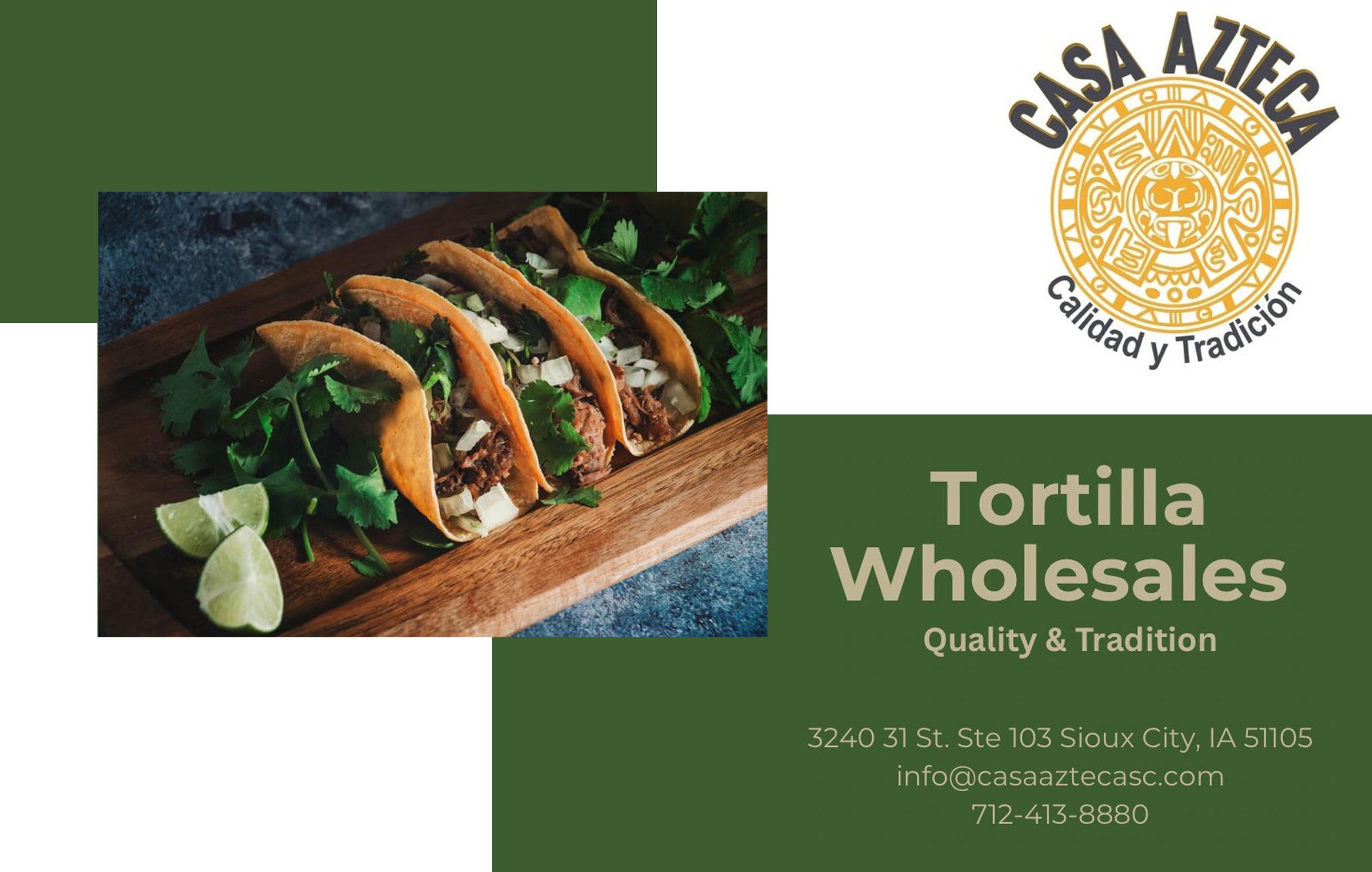
; A TUS HIJOS ; A TUS PADRES ; A TU COMUNIDAD
La mejor manera de protegerte a ti y a tu familia contra el sarampión es recibir la vacuna MMR.
¿TIENES PREGUNTAS?
HABLA CON TU MÉDICO
POR FAVOR, DEJA UN MENSAJE DE VOZ Y TE DEVOLVEREMOS LA LLAMADA.
Todas las líneas son atendidas por voluntarios. Si tu comunidad desea crear una línea de ayuda en otro idioma, contáctanos!

¿QUÉ HACER SI ESTUVISTE EXPUESTO?



SI ESTÁS VACUNADO:
• Vigila si presentas síntomas y llama a tu médico si desarrollas alguno.
SI NO ESTÁS VACUNADO:
• Llama a tu médico para saber si eres elegible para recibir la vacuna MMR (hasta 3 días después de la exposición).
• Si estás en un grupo de alto riesgo (bebés, mujeres embarazadas o personas con problemas del sistema inmunológico), llama a tu médico. Es posible que seas elegible para una infusión de anticuerpos dentro de los 6 días posteriores a la exposición.
• Aíslate en casa durante 21 días.
• Llama a tu médico si presentas síntomas.
• Los niños en edad escolar deben quedarse en casa y no pueden asistir a la escuela durante 21 días.
¿DÓNDE PUEDO RECIBIR LA VACUNA MMR?
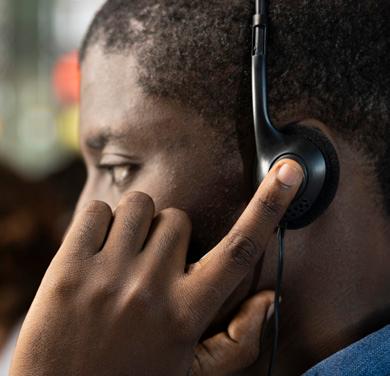

• En el consultorio de tu médico
• En los departamentos de salud del condado
¿DÓNDE PUEDO OBTENER MÁS INFORMACIÓN O AYUDA PARA RECIBIR LA VACUNA?
• Contacta a tu médico o al departamento de salud
• Llama a nuestra Línea Confidencial de Ayuda sobre el Sarampión:
INGLÉS: 1 (515) 512-1881
ESPAÑOL: 1 (515) 216-0009
ÁRABE: 1 (319) 853-8142






















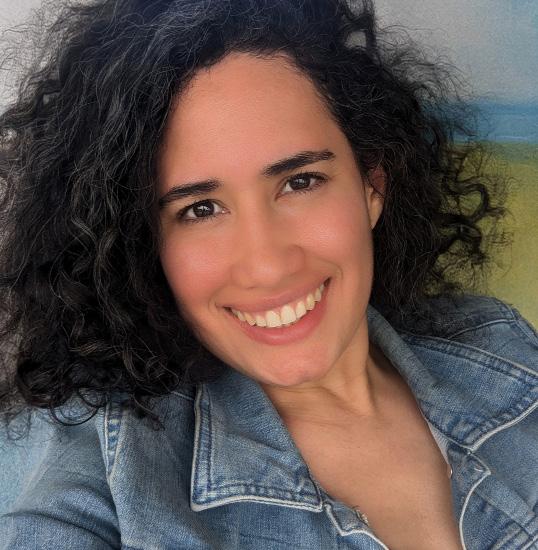





This question gets buried in our daily grind, especially when you're a JEFA balancing business and family. But it’s not just a helpful check-in. It’s the foundation that keeps us healthy, fuels our growth, and pushes us to become the best versions of ourselves. And when we become the leader, mother, and woman we are meant to be, everyone around us benefits.
The stories of strength and resilience, faced with adversity and unexpected turns in this issue moved me to tears. The JEFAS featured here are living proof of courage and strength. They embody courage, strength, and a conscious commitment to pouring into themselves — so they can pour into others. That transformational resilience benefits every corner of
their lives and businesses.
Whether you want to boost your mood, health or financial future, this issue is filled with tangible advice from women who are committed to prioritizing their physical and mental health and living balanced lives. Some have faced life’s hardest tests and come through stronger and more centered on gratitude. Others used health scares and quiet moments as sparks that launched life-changing businesses. Many have offered more than just economic contributions; they created communities of support and healing that have touched lives in ways beyond profit and productivity.
As you dive into these pages, I hope you feel motivated and energized to create a life rooted in joy, purpose,
and self-care, just like the successful, thriving JEFAS who fill these pages with inspiration.
Remember: Your health, in every sense of the word, is your greatest gift and most powerful asset. This issue is dedicated to helping you protect and grow it, today and every day.
Con Cariño y Salud,
CHRISTINA FERNÁNDEZ-MORROW
Editor-in-Chief
JEFAS Latinas in Business
Photo by Tar Macias


At the heart of Des Moines’ bustling downtown farmers market, the air carries more than the usual aromas of fresh produce and street food. It carries memories. Helen Saldaña, owner of Helen’s Scents uses her Mexican roots to create hand-crafted candles and soaps that transport her customers to afternoons in grandma’s kitchen, stirring a pot of café de olla, sparking joy for Saldaña who has a heart for helping others live a healthy and happy life.
Deep in her final semester of Drake University's accelerated nursing program, Saldaña juggles textbooks and business plans from her home office while her toddler plays nearby. As markets across the state lure hundreds to main streets and corridors in search of unique gems and familiar comforts, Helen’s products are among them. But Saldaña’s journey began unexpectedly, during a time of boredom.
“I started during Covid. I took an online class to learn how to make cold-processed soap,” she shares of the first step toward what would become her business. While the process is fairly simple, using oils, fats and lye, it takes 4-6 weeks to cure into an effective and safe cleaning agent. As she progressed to experimenting with different types of oils and creating her own formulas, she discovered that many soap makers use those same oils to make candles and she decided to give it a shot. “I started off making little candles, in clear jars – the basic ones that you have at home,” she says of her early efforts.
Then one day she got an idea drawn straight from her roots. Instead of plain glass jars, why not use the vibrant Mexican clay pots that had adorned her home for years? Created for serving food, Saldaña knew the pots could withstand the heat of the melted wax.
“It actually made the candles smell so much better,” she says of switching from glass to clay. This allowed Saldaña to incorporate her culture into the hobby she had grown to love. Plus, the bright colors of the hand-painted pots popped, making the candles look more decadent. The clay pots, which she imports from her family’s pottery business in Mexico City, are custom made for her, and she requests special designs and colors based on what her clients prefer. An additional advantage is that the pots are reusable, so she offers a deal when customers return their pots to fill with a new scent, or their old favorites.
Customer response inspired her to dig deeper into the smells she recalled from her childhood. “Horchata, churro, and flan are my more popular scents,” she comments. “I get a lot of comments, people saying it reminds them of a time they were in Mexico. My Latino customers tell me they love them because it represents them, and they’re homey and cute.”
Saldaña loves that her products encourage moments of self-care, when the smell of one of her candles sparks nostalgia, or a soap helps their skin feel smooth and moisturized.
Helping others is in her nature. That’s
why she chose a career in nursing. “It’s flexible,” she says of a nurse’s schedule. “You can work three days and then have four days off,” which she feels fits well with her business.
But days off are something Saldaña doesn’t anticipate any time soon. She dreams of moving her operation from her home to a space dedicated to her equipment and creations.
“More than anything, I would like to have my own studio and host candle-making parties,” she says, recalling a recent event where she helped a local Girl Scout troop create their own candles. “It was a group of little girls, and they were all Latinas. It was so inspiring.”
For Saldaña, her candles and soaps are a work of pride that merge her love of wellness and culture. She is grateful when someone shares the memories evoked by her scents, or how her special mix of fruit and seed oils in her soaps transformed their skin. Those moments of bliss she creates for others fulfill her in ways that make the long nights of work feel worth it. She appreciates the care customers take when choosing one of her products. “It’s for your space, where you rest the most,” she reflects, emphasizing the deep connection between self-care and the scents we surround ourselves with, creating connections that last well beyond the burning of a wick.
By Christina Fernández-Morrow
by Tar Macias

Latina-owned businesses are opening at a rate faster than any other demographic segment in the U.S.



